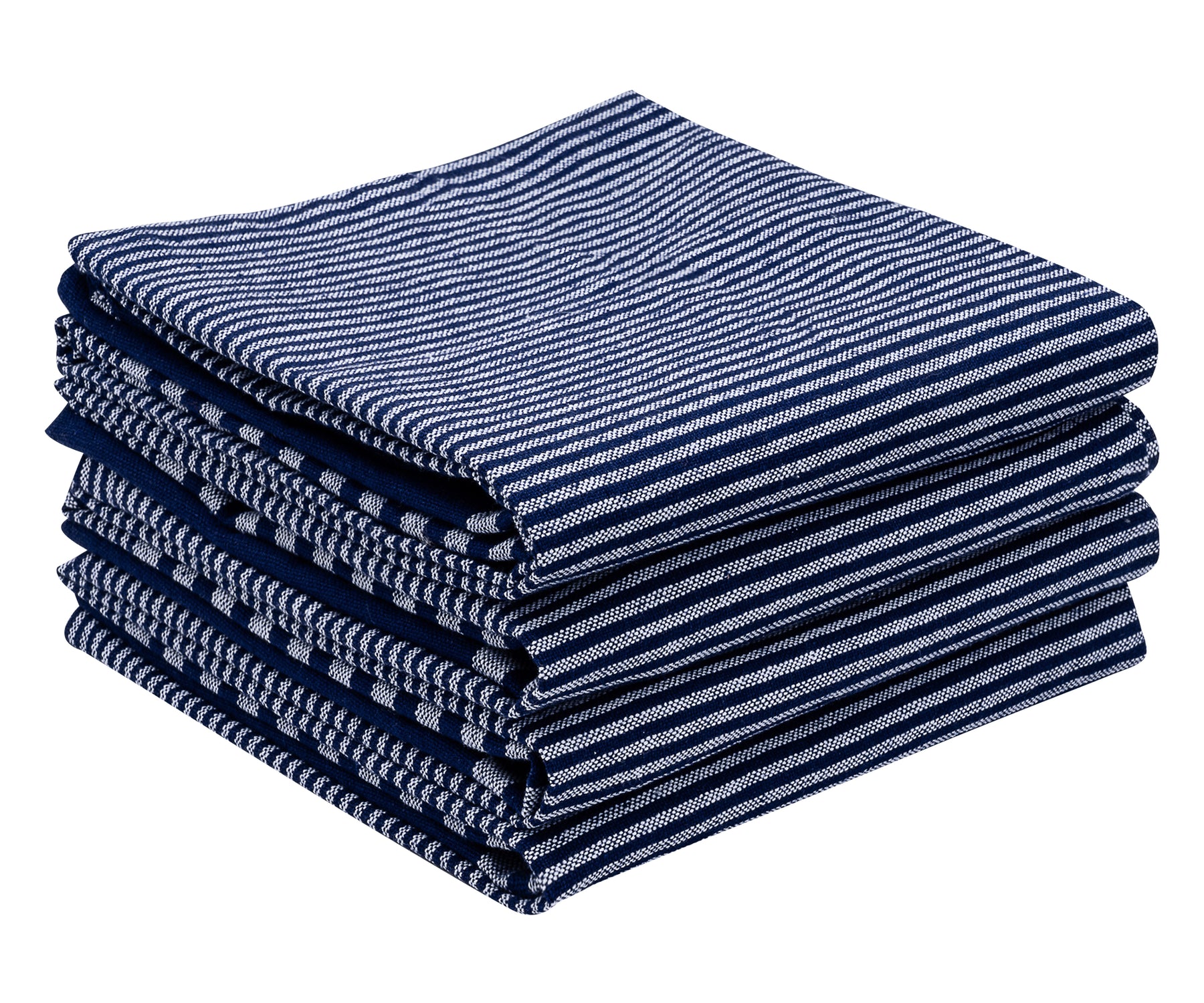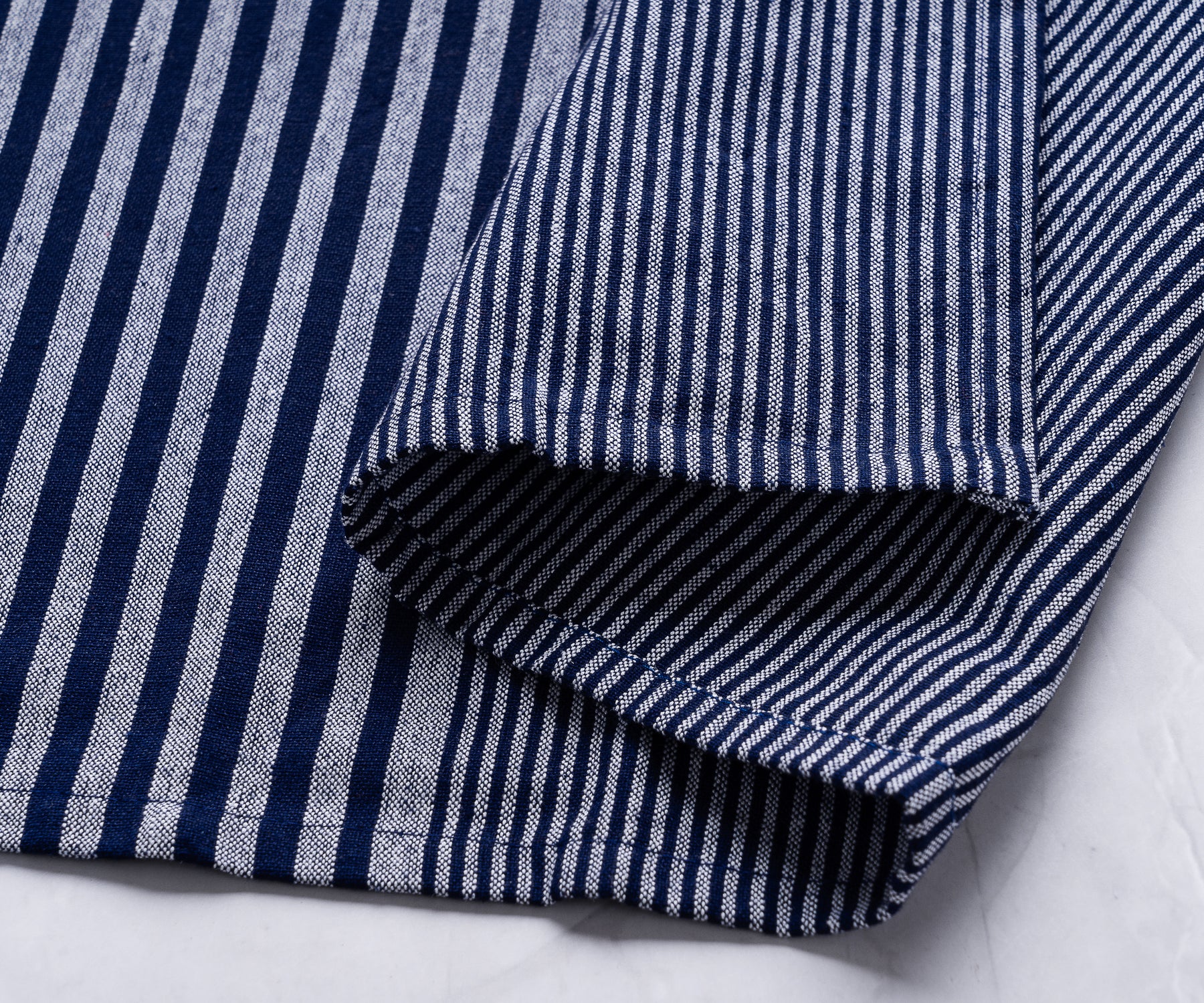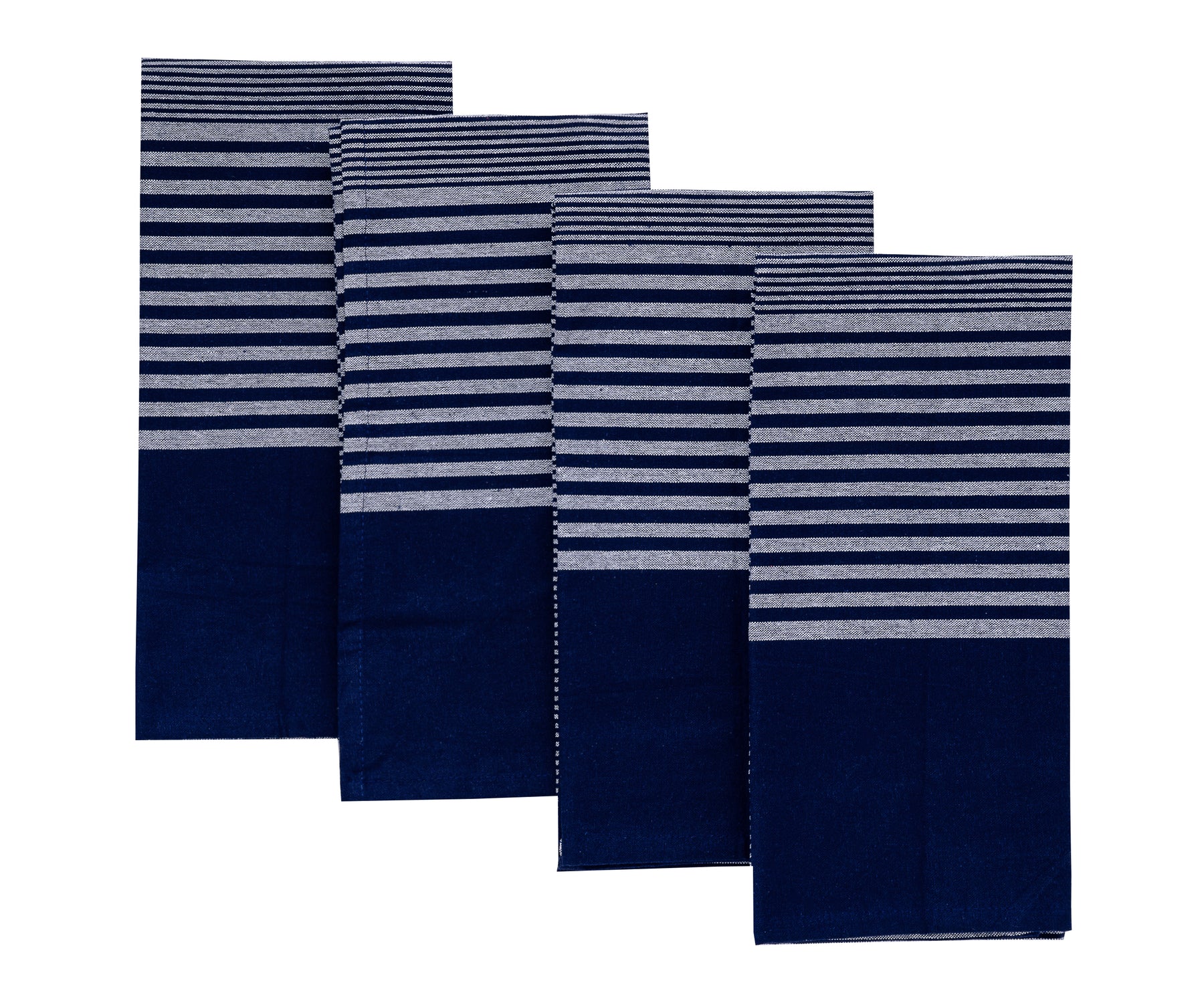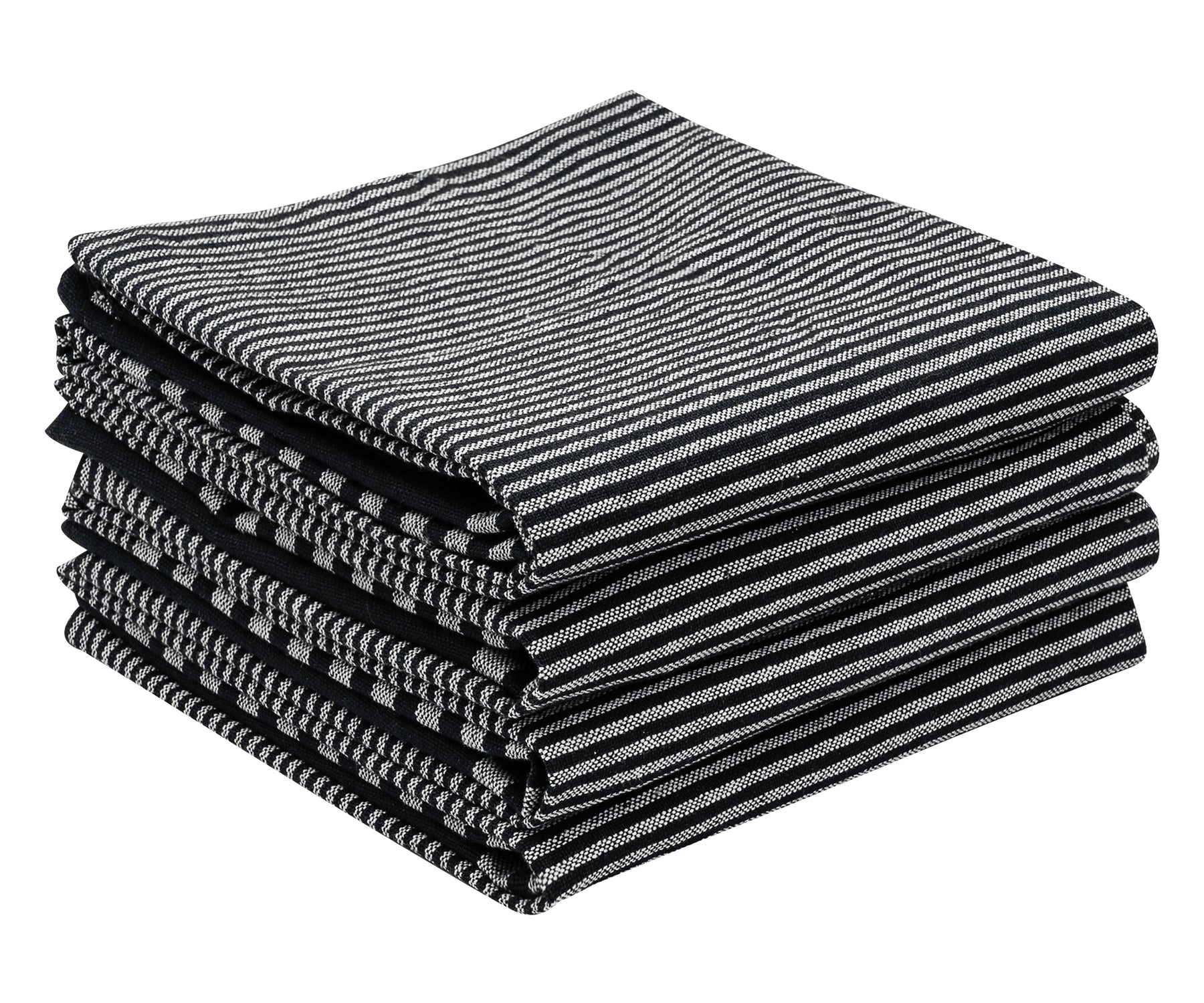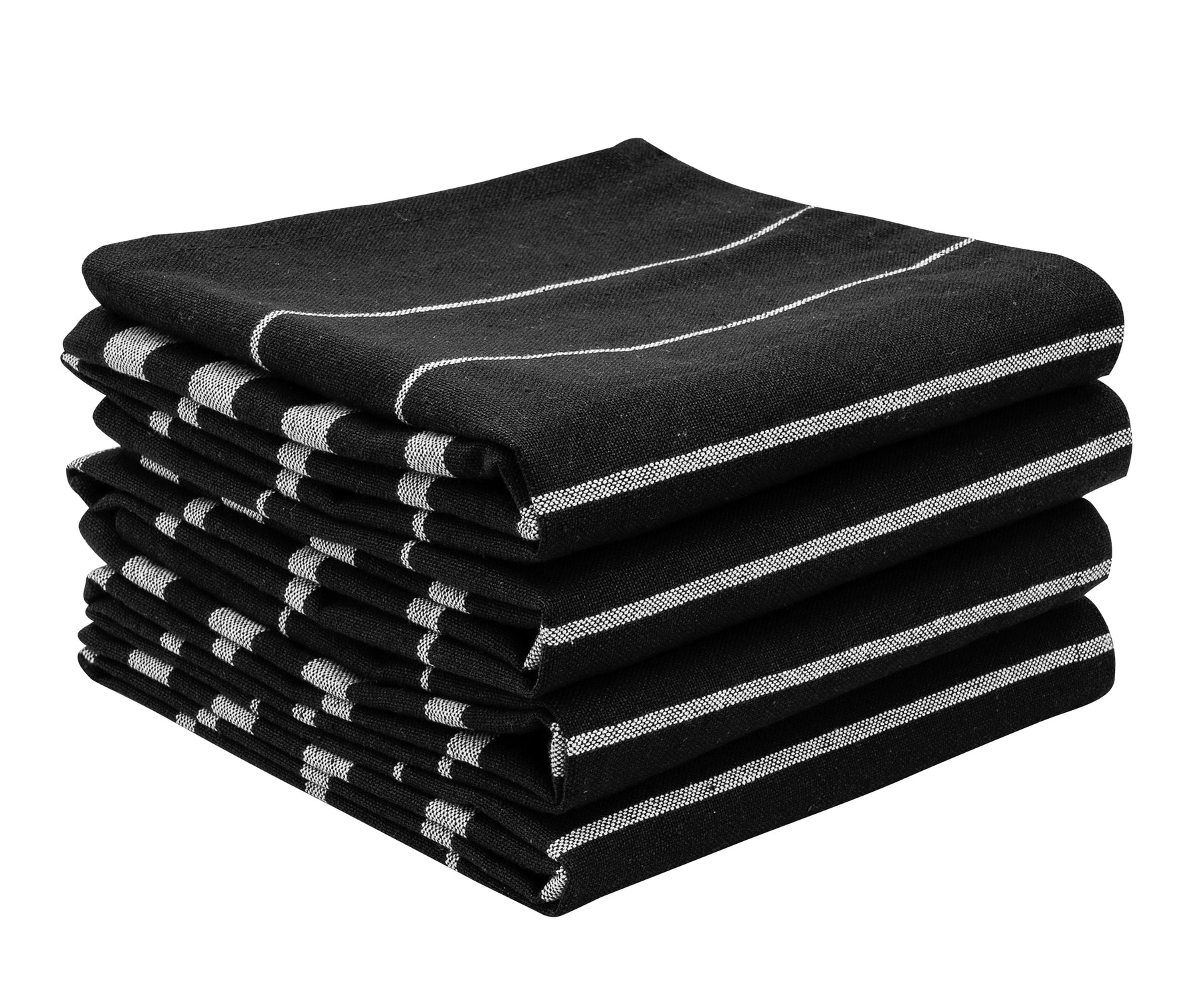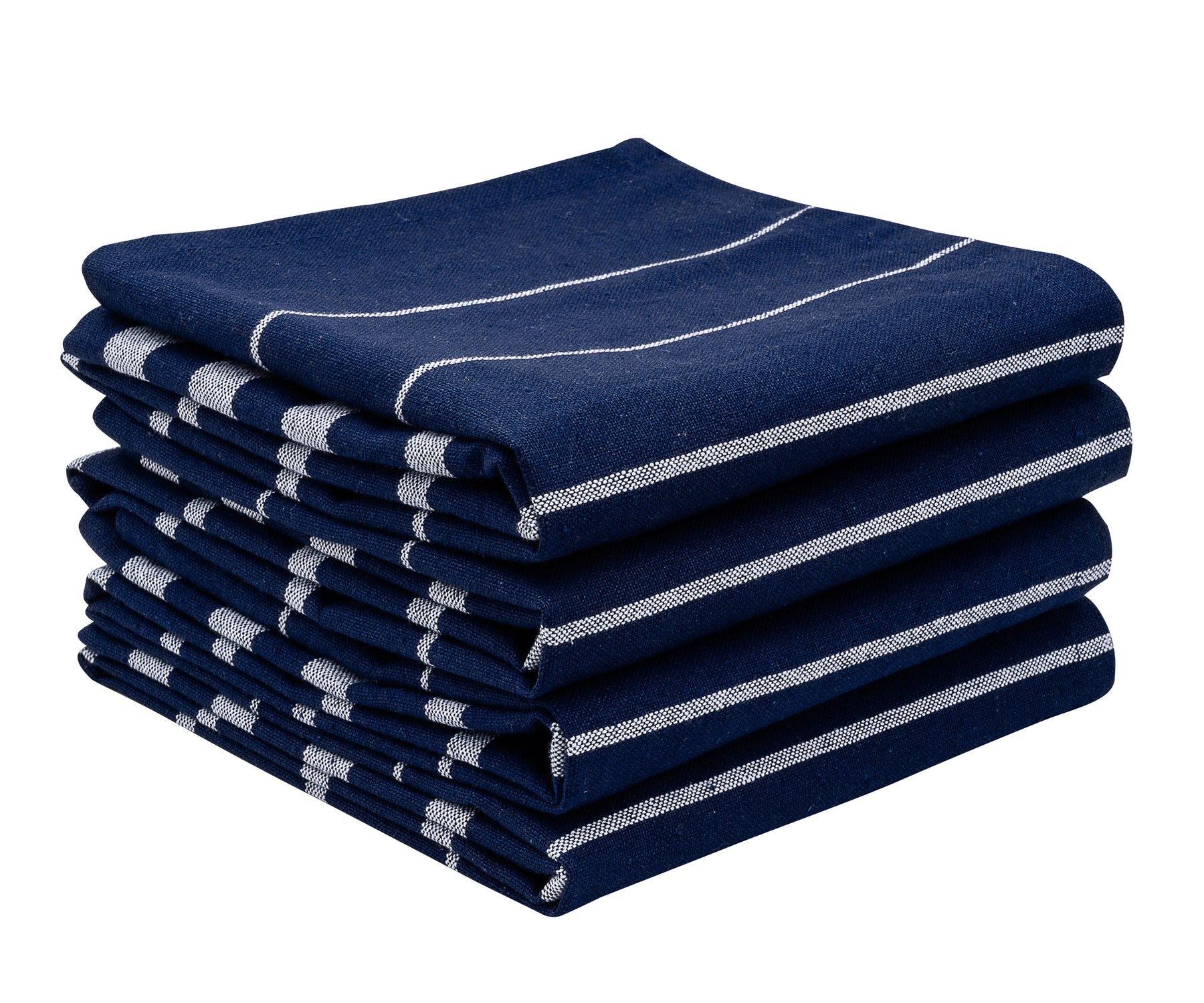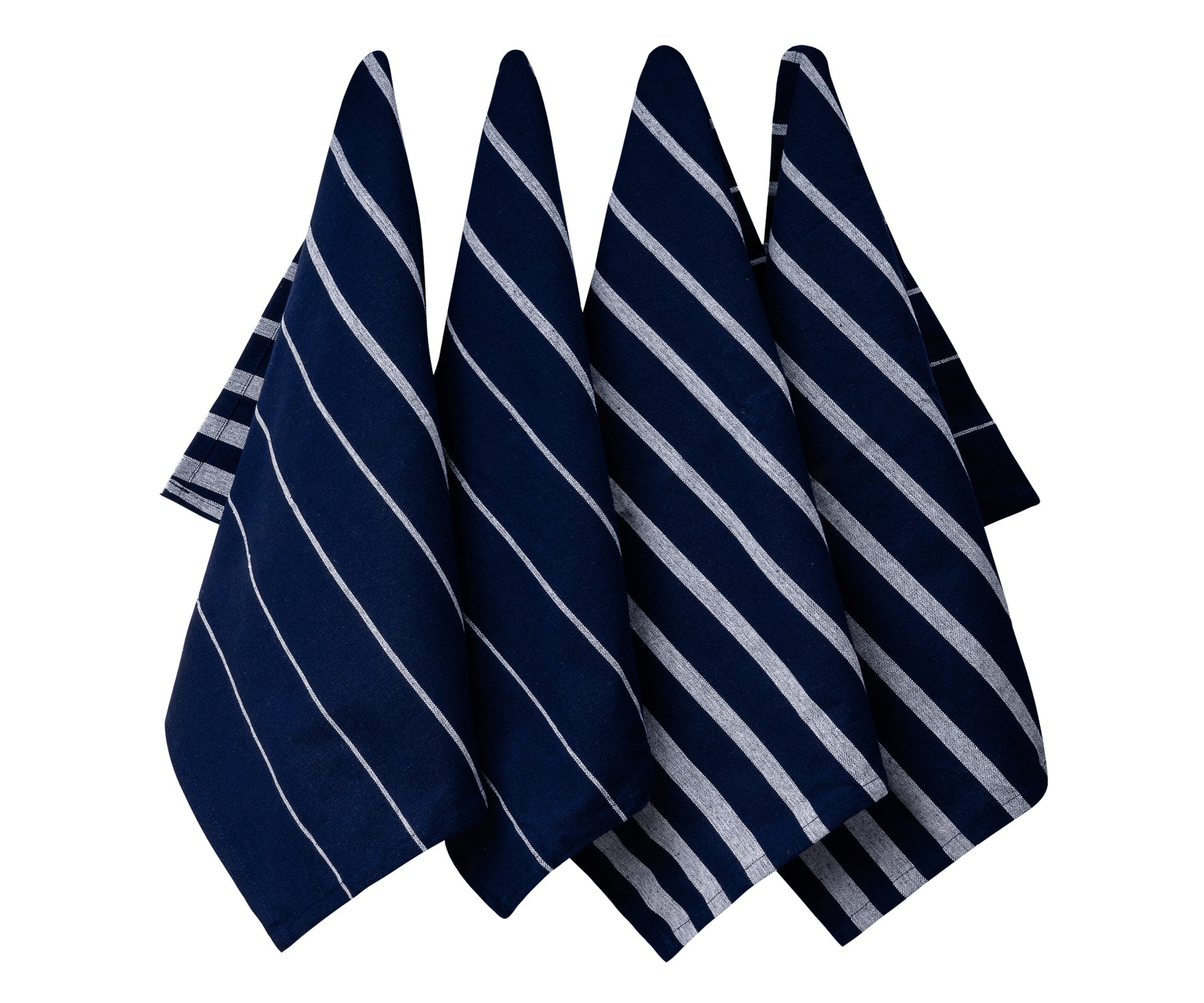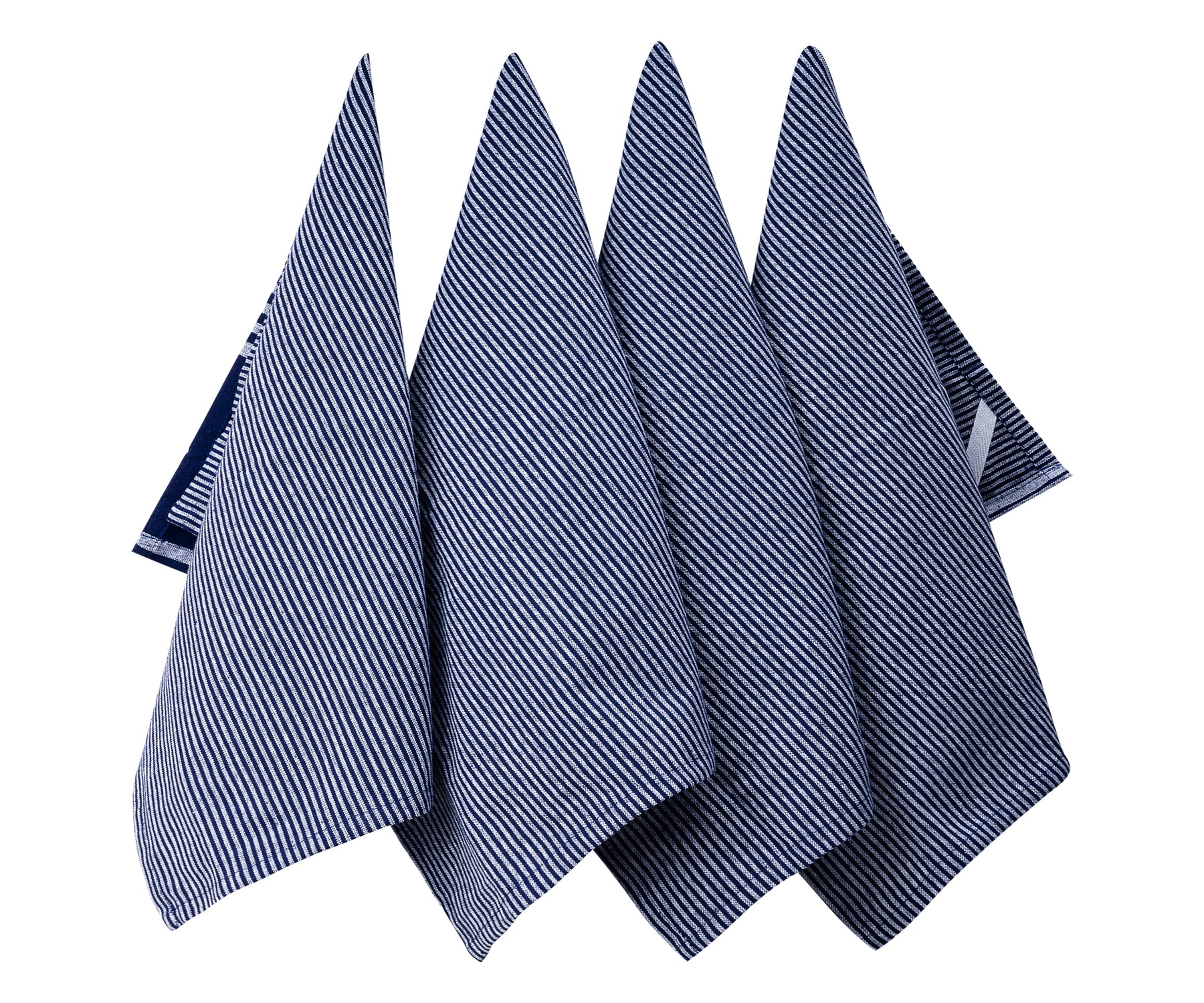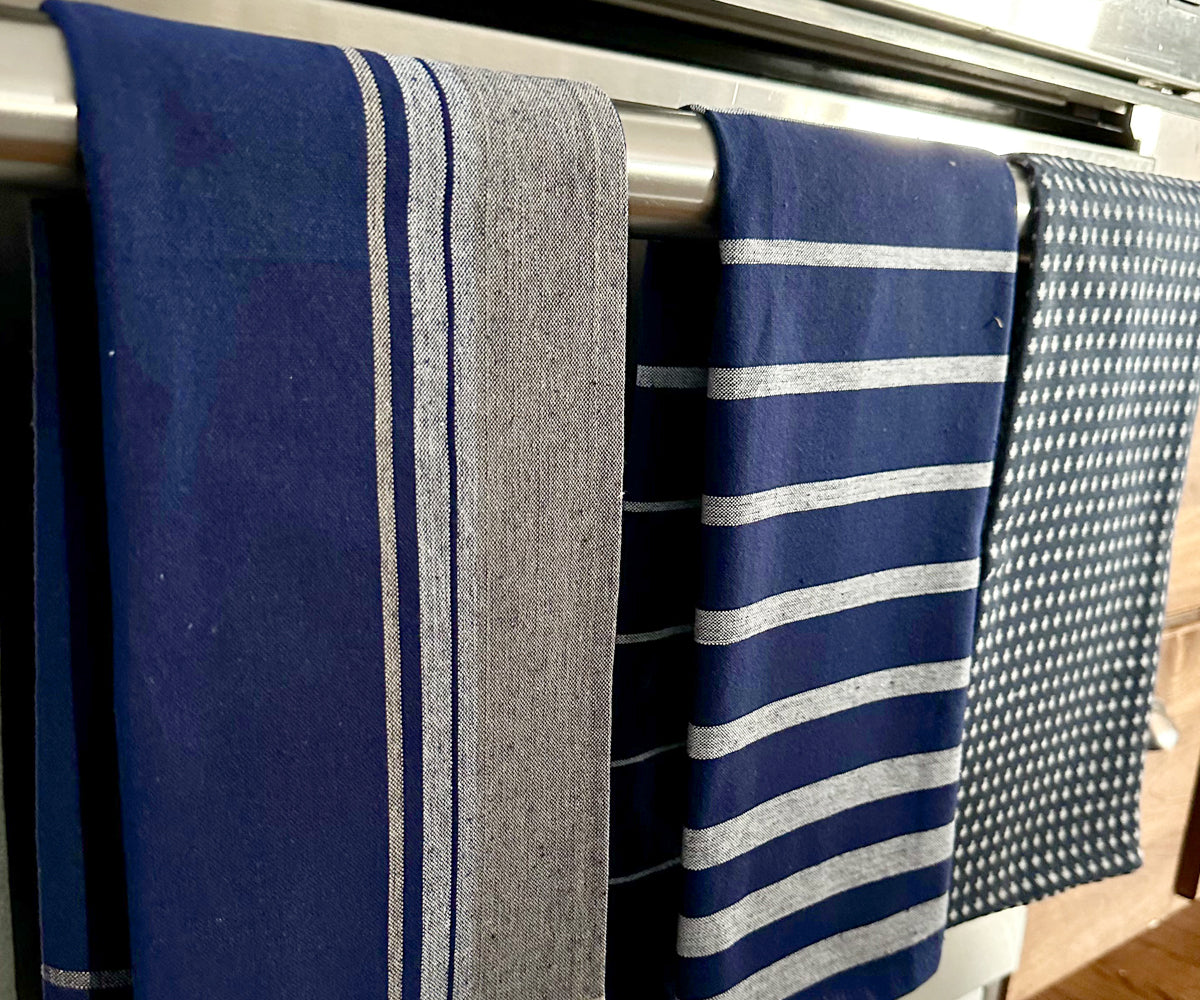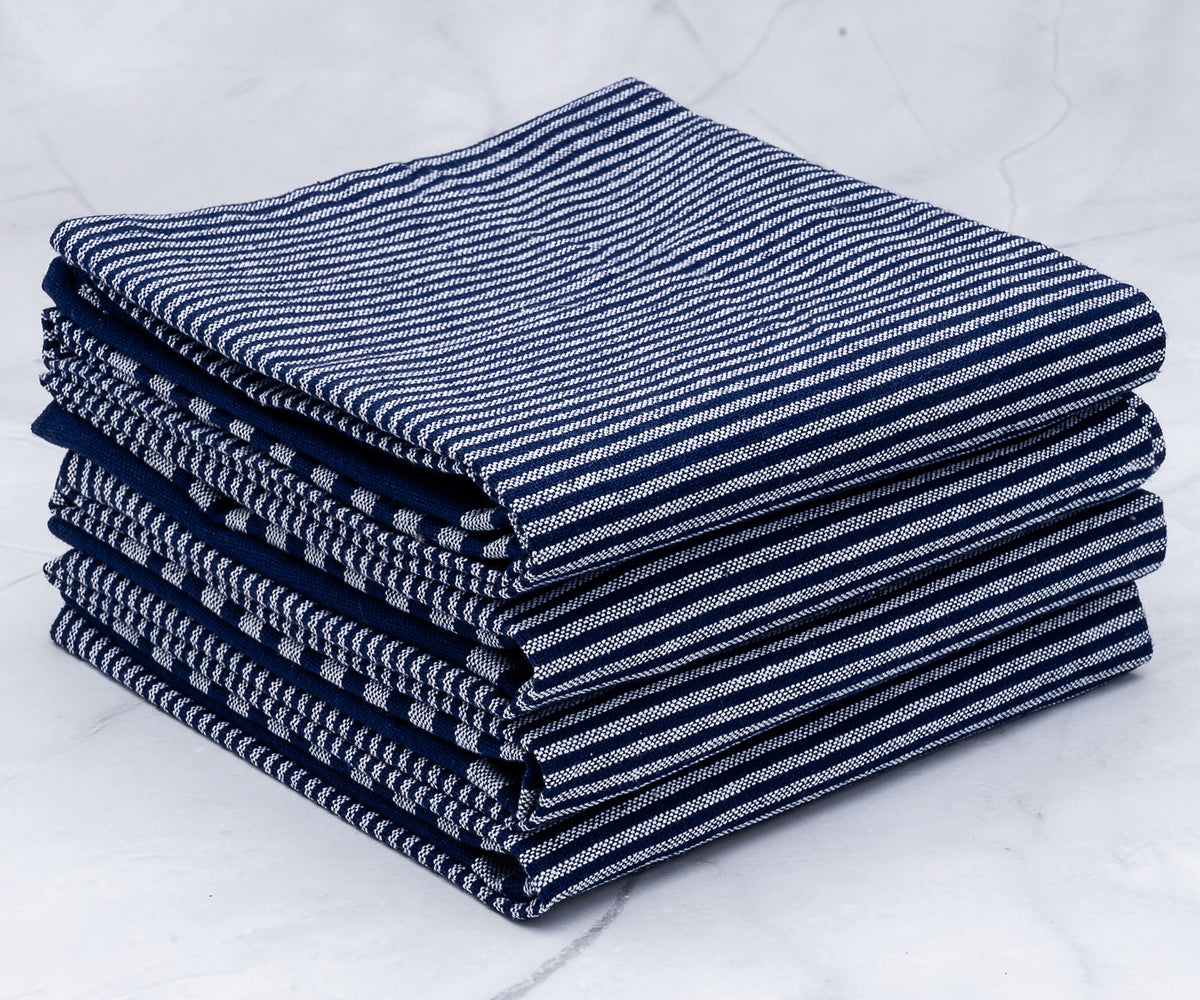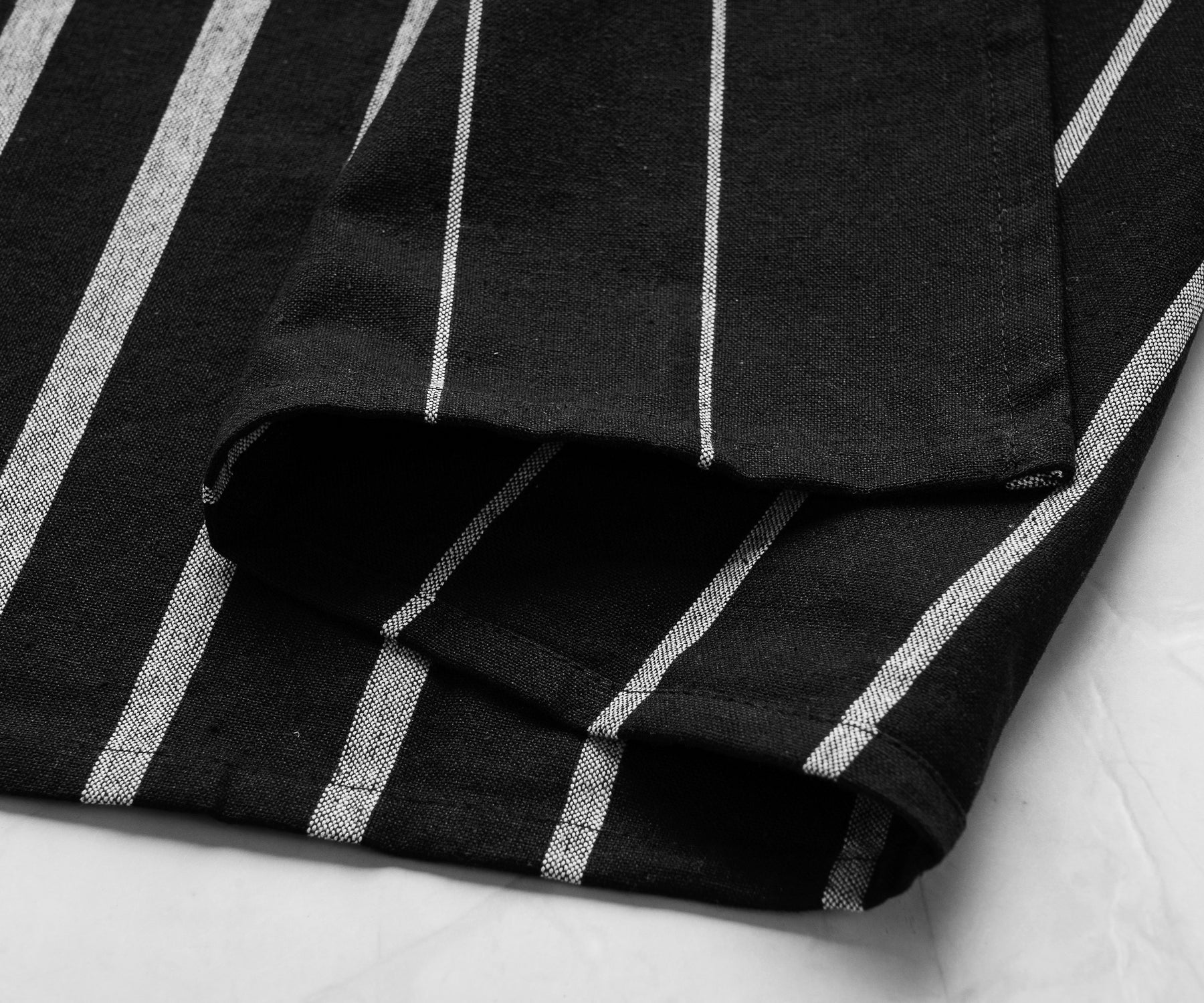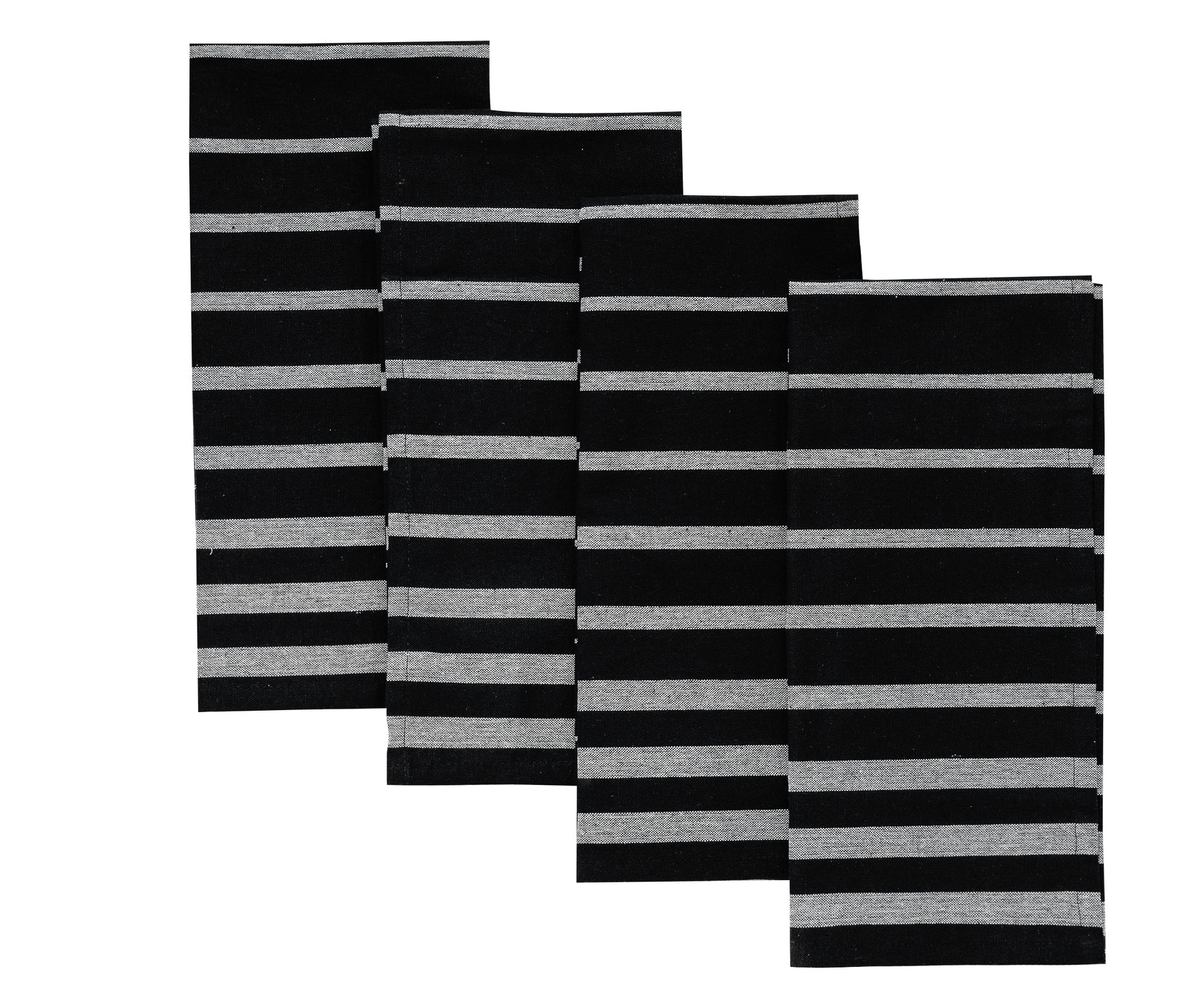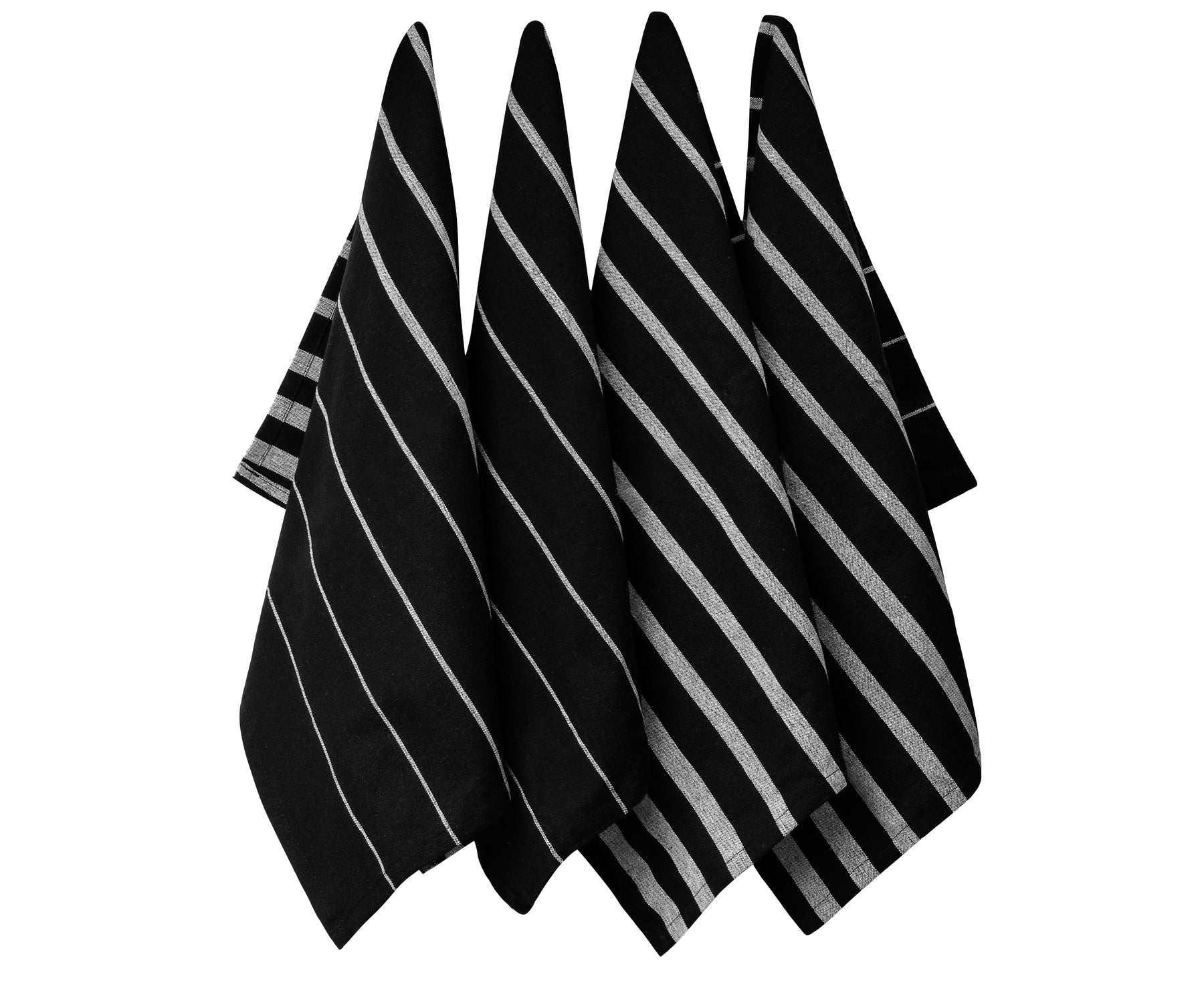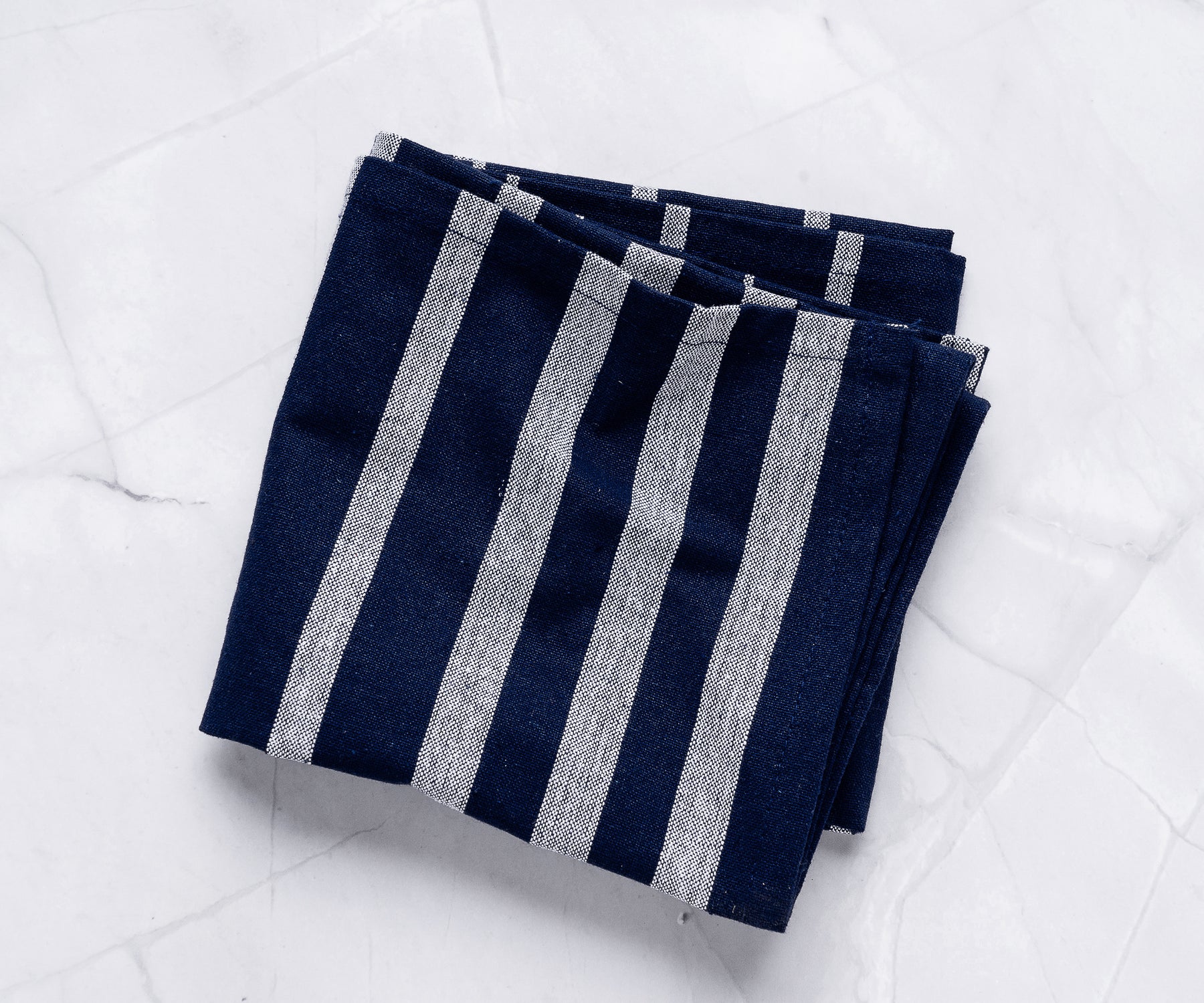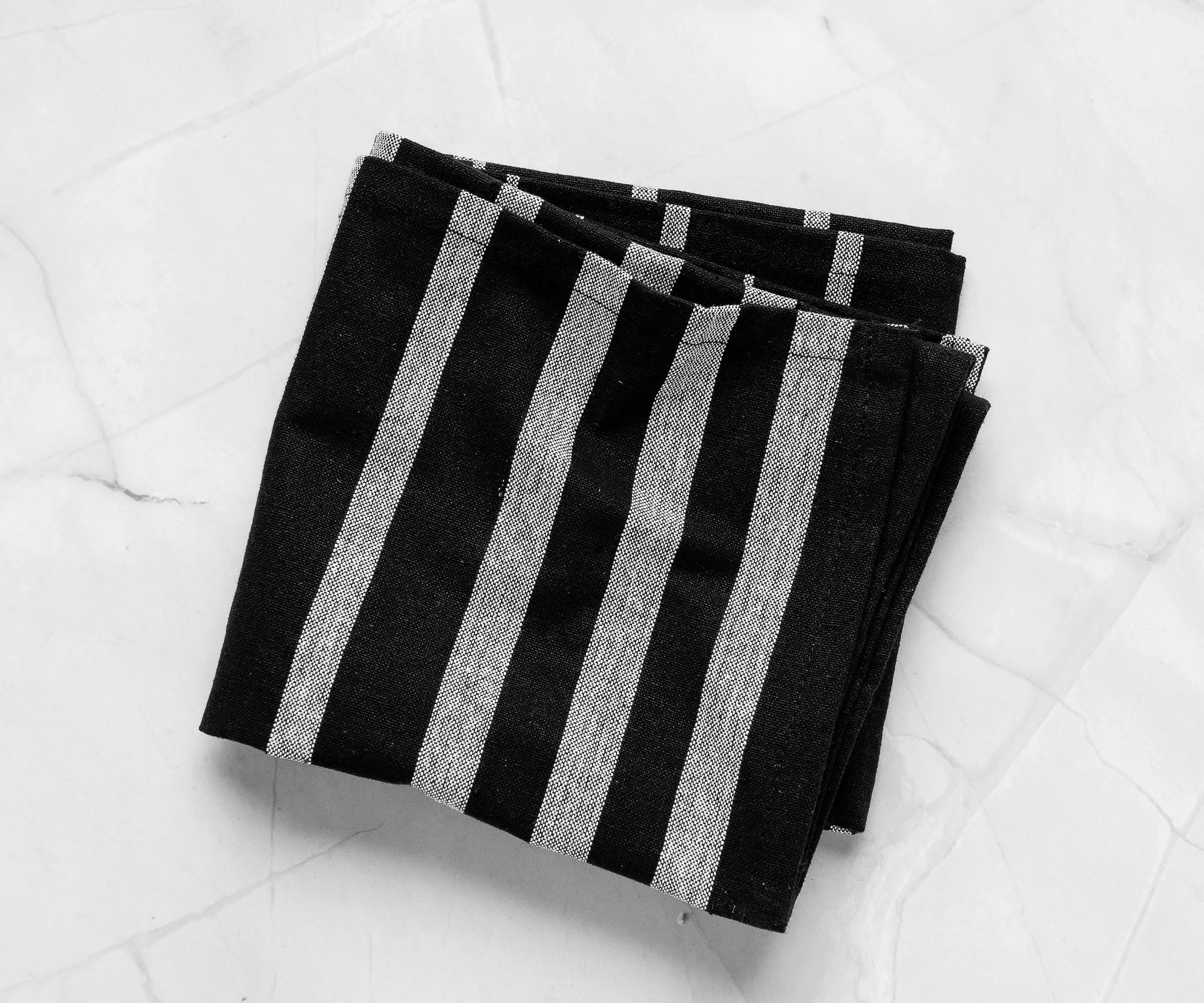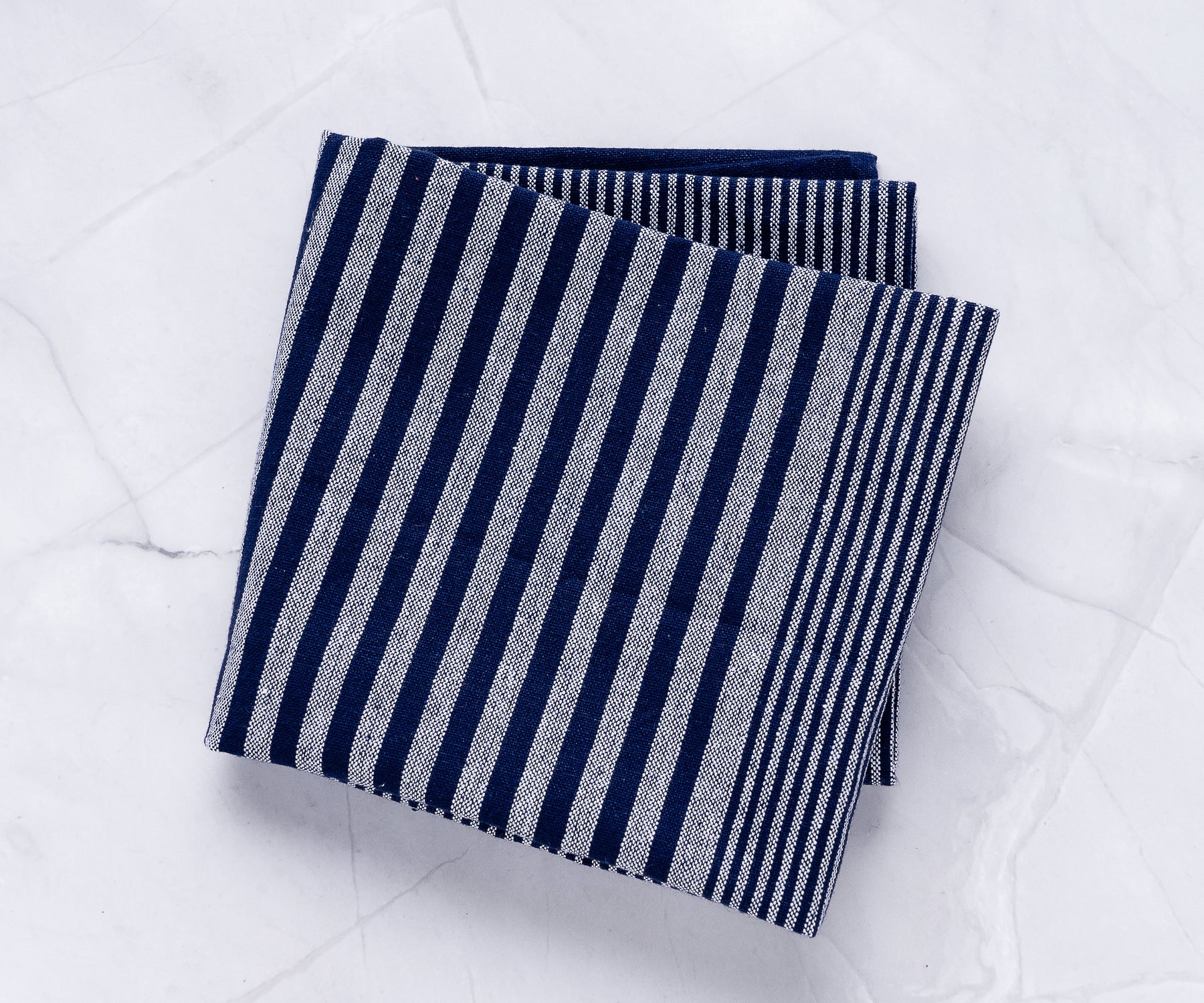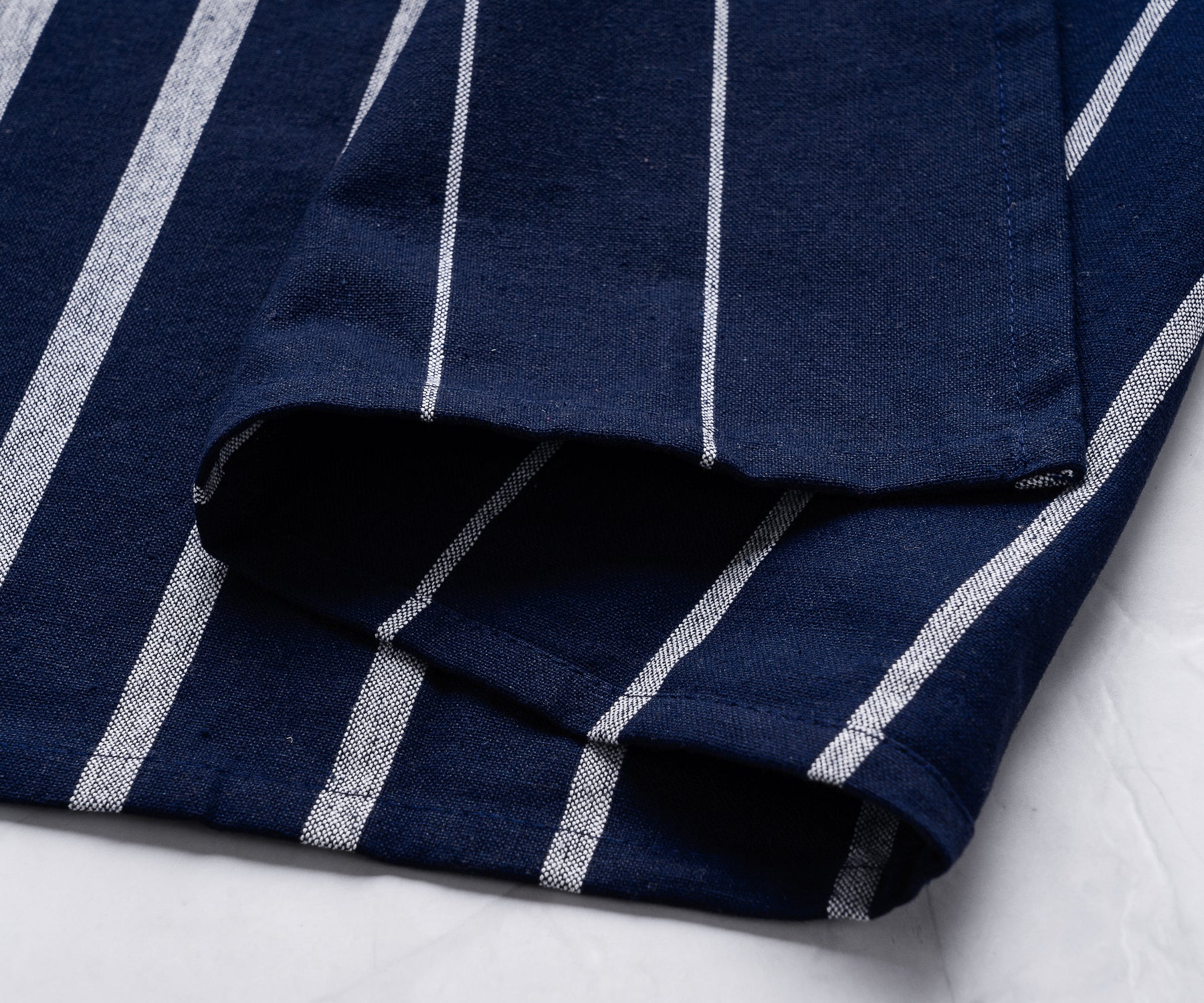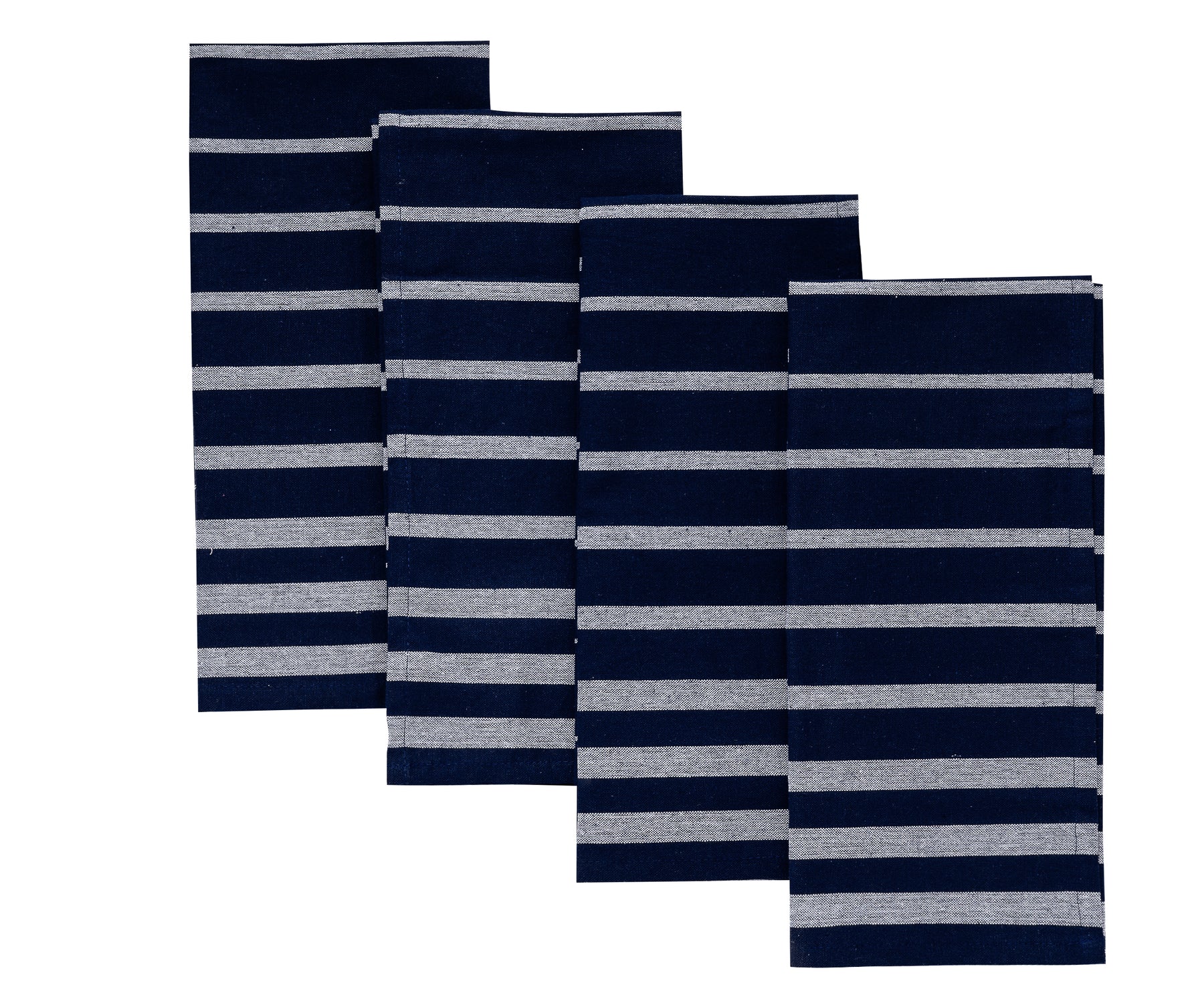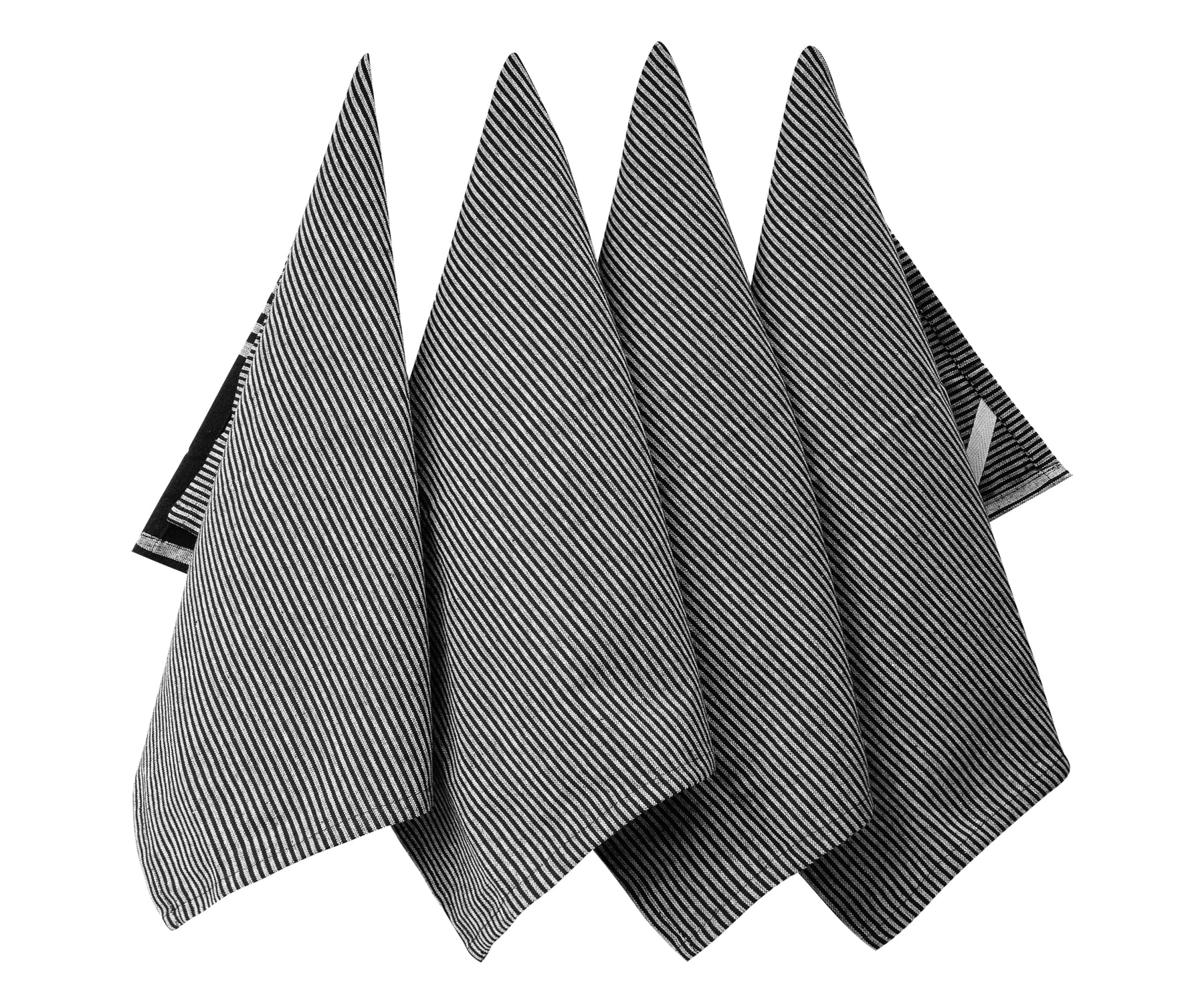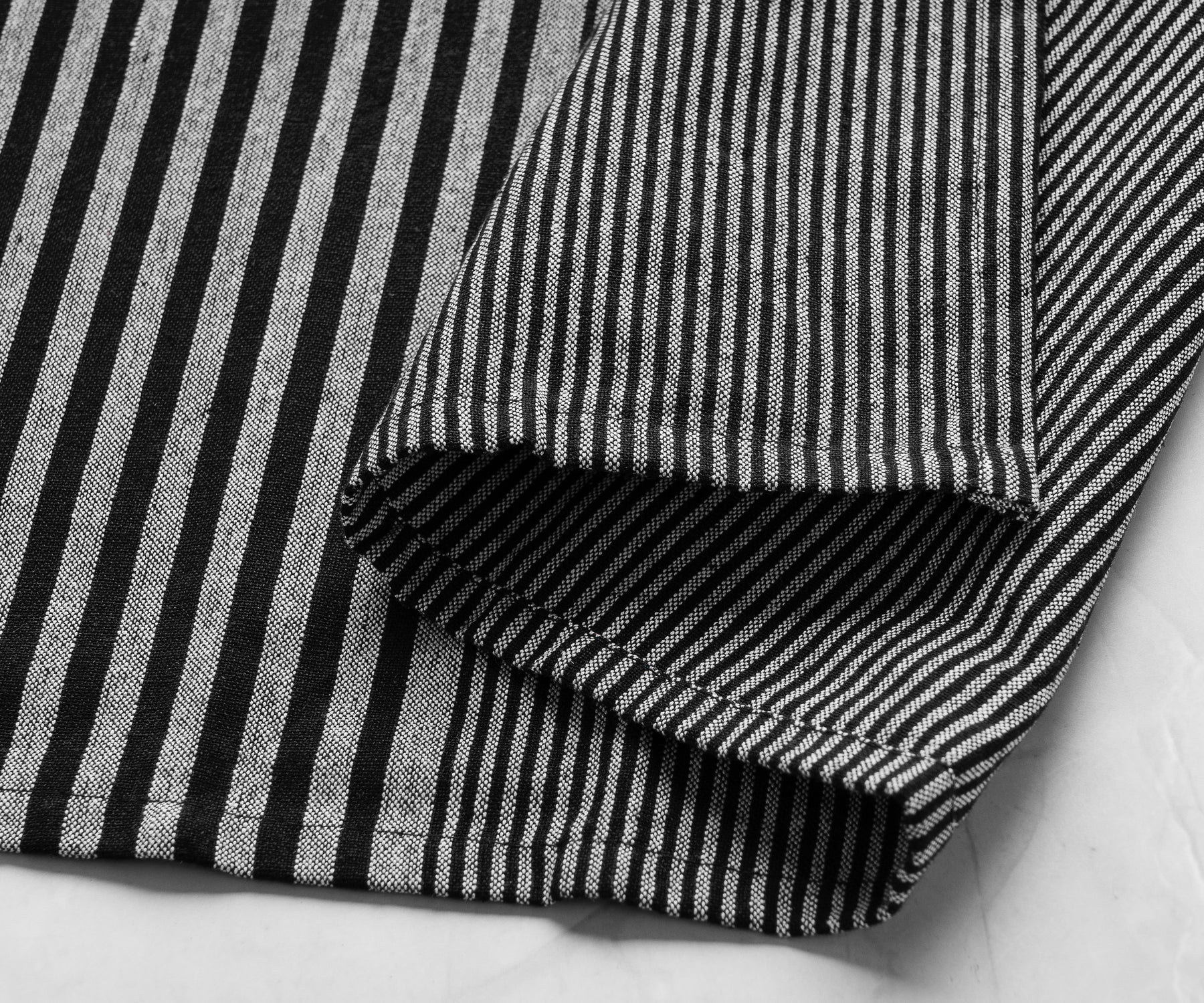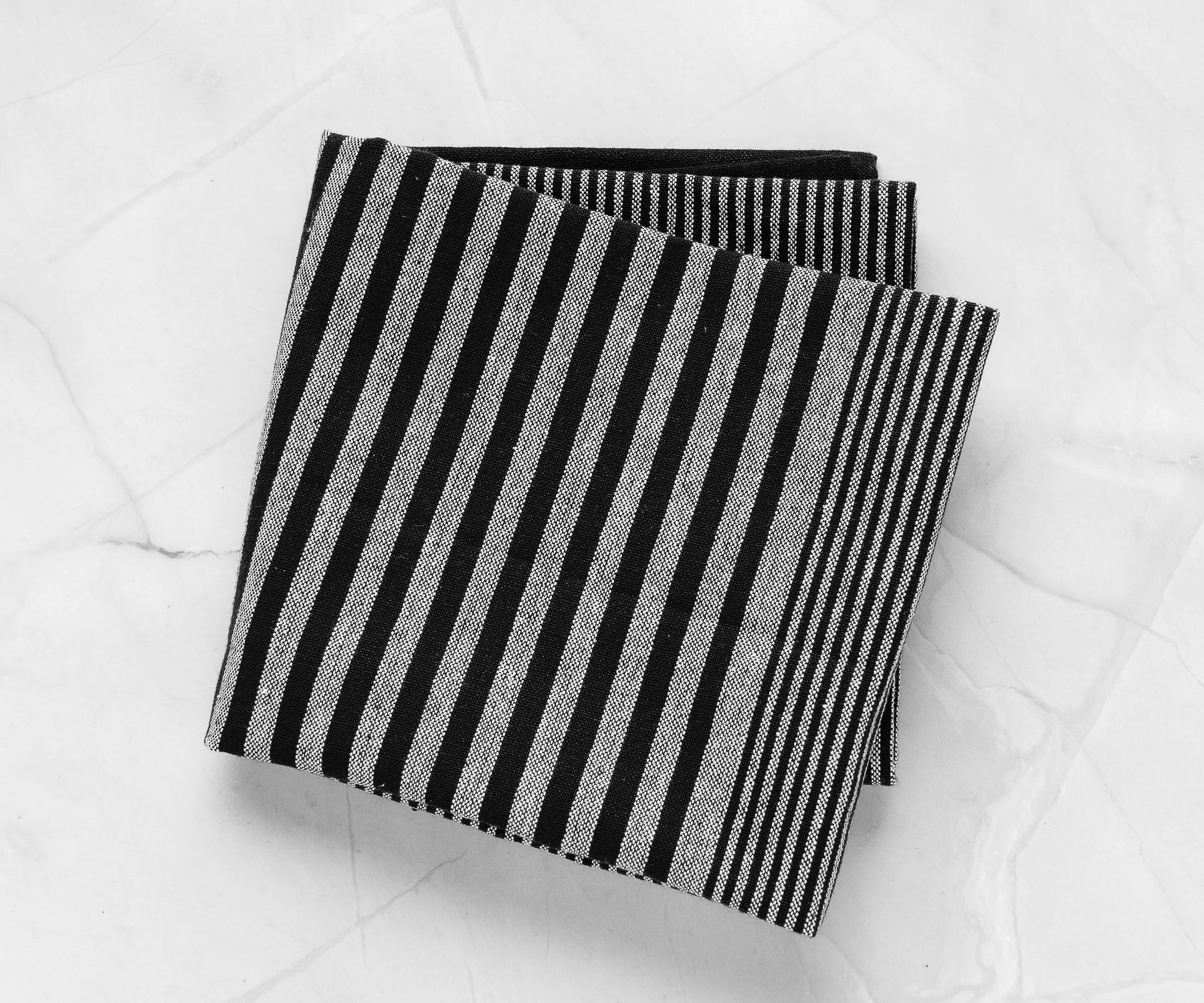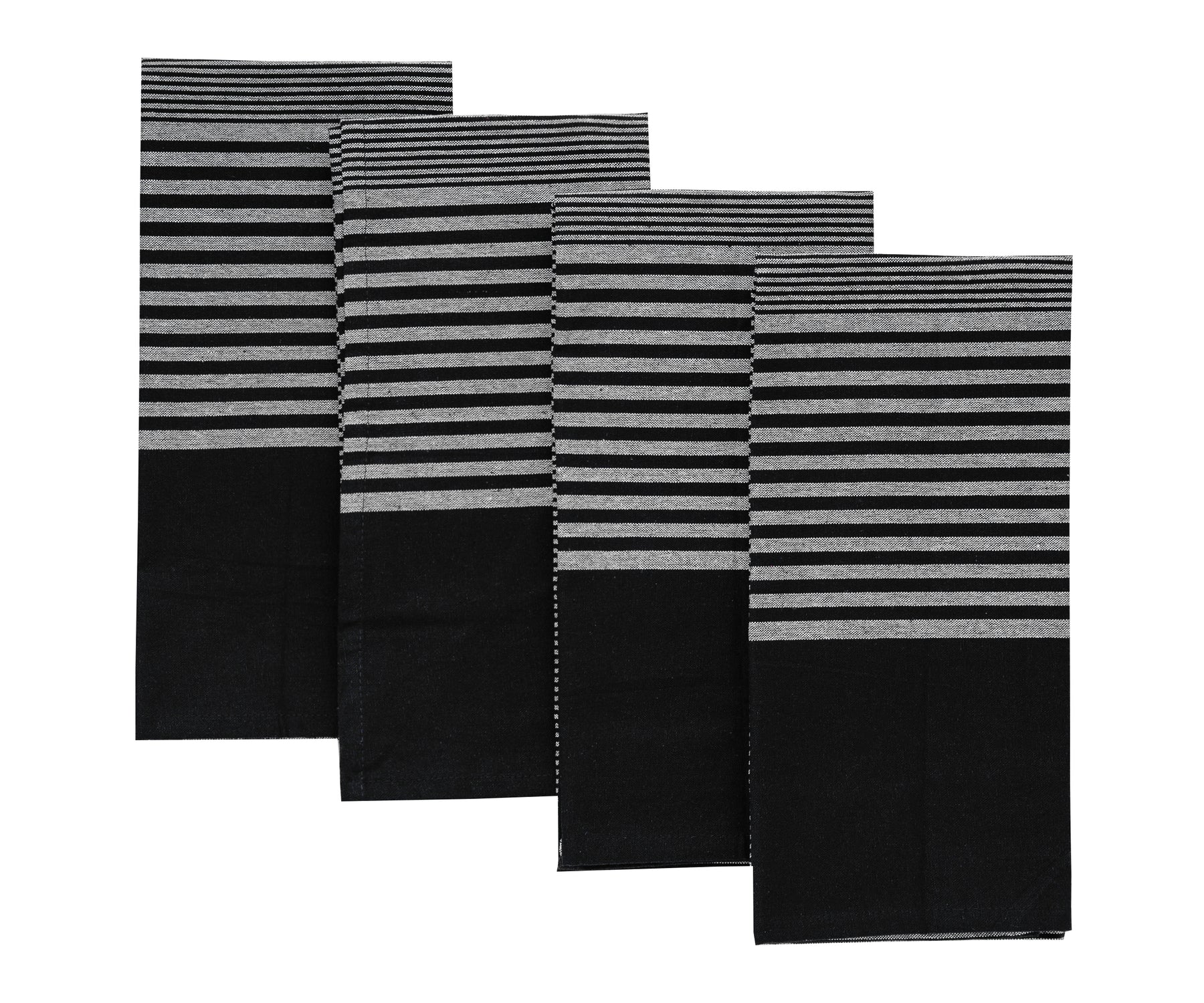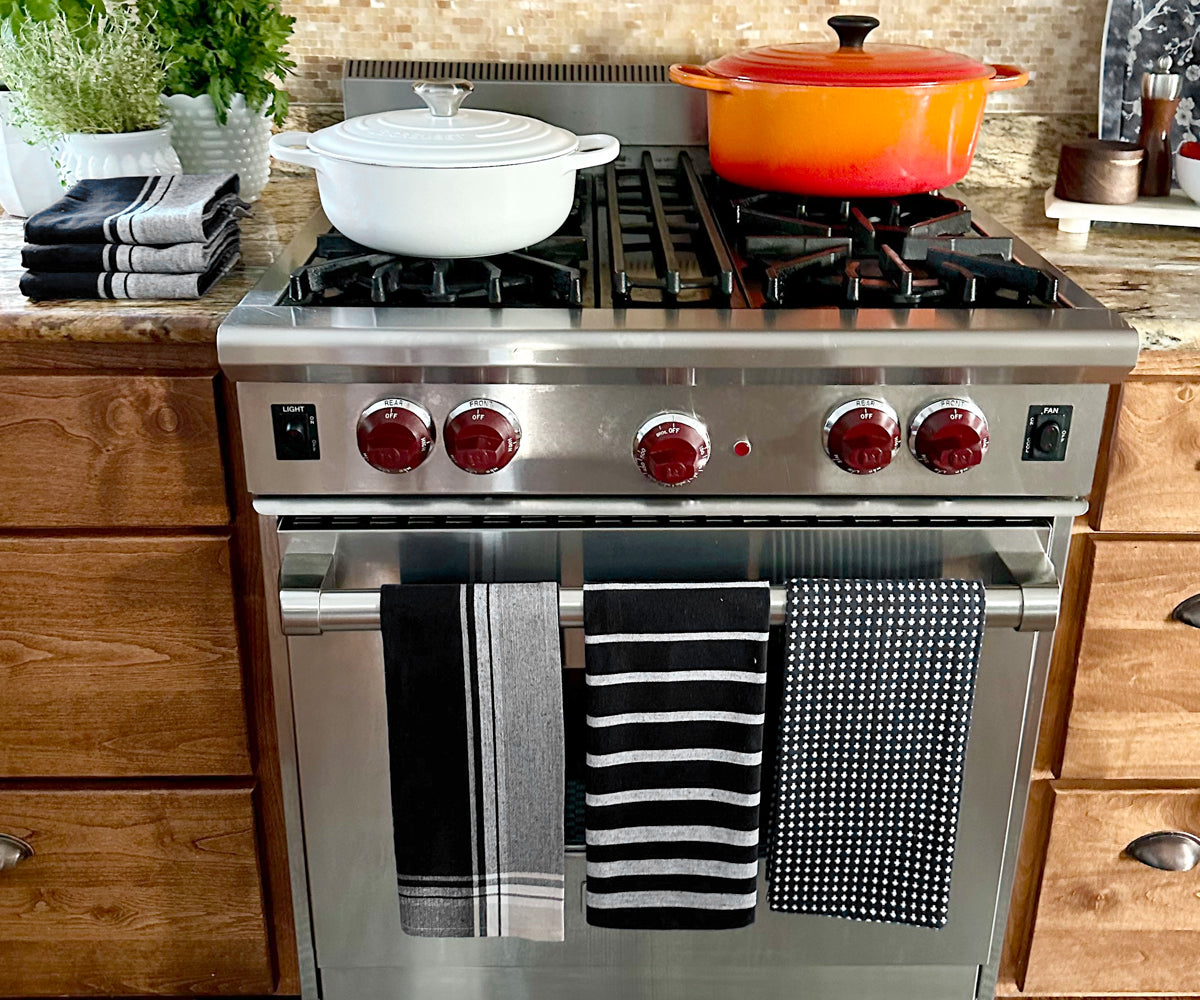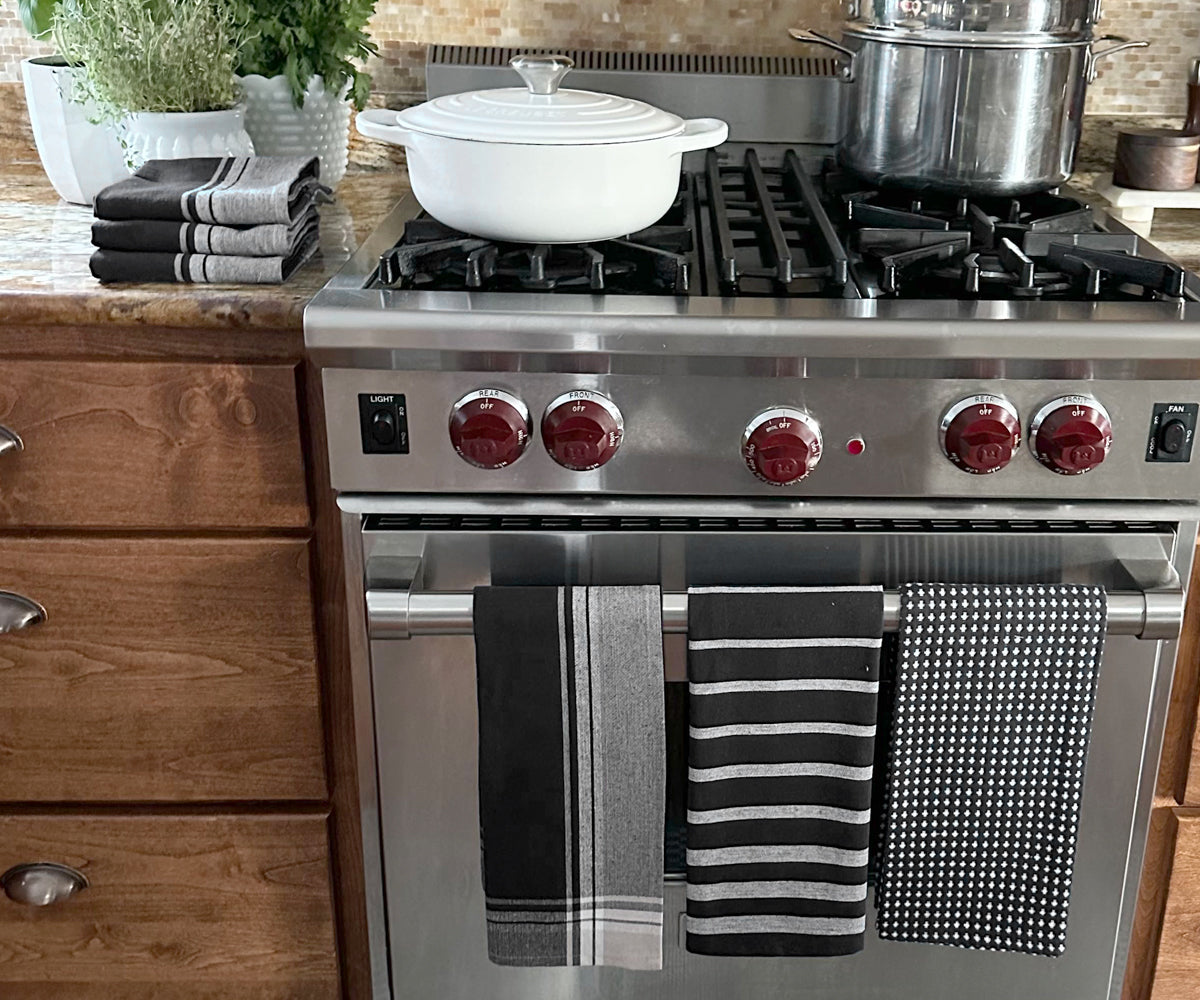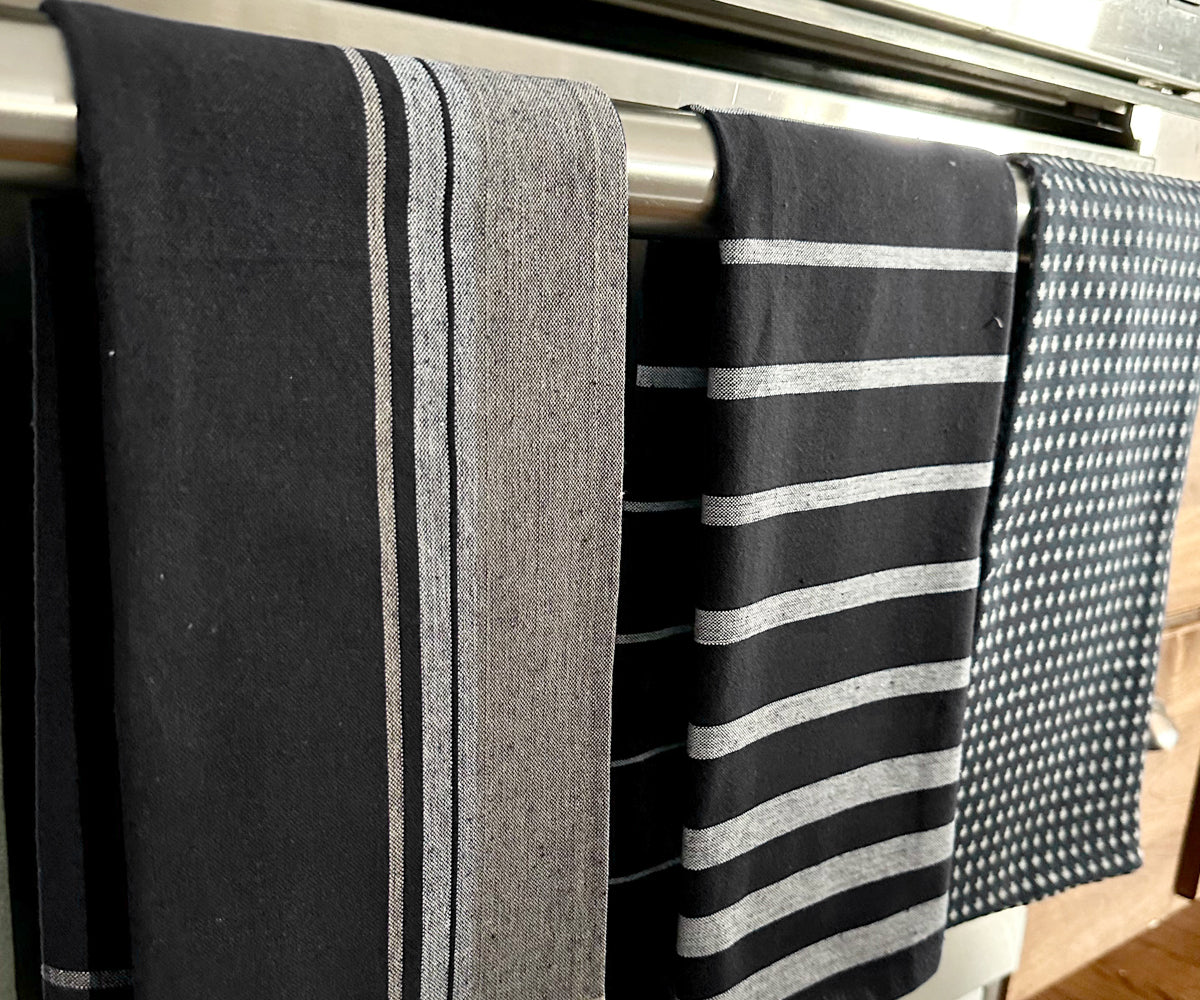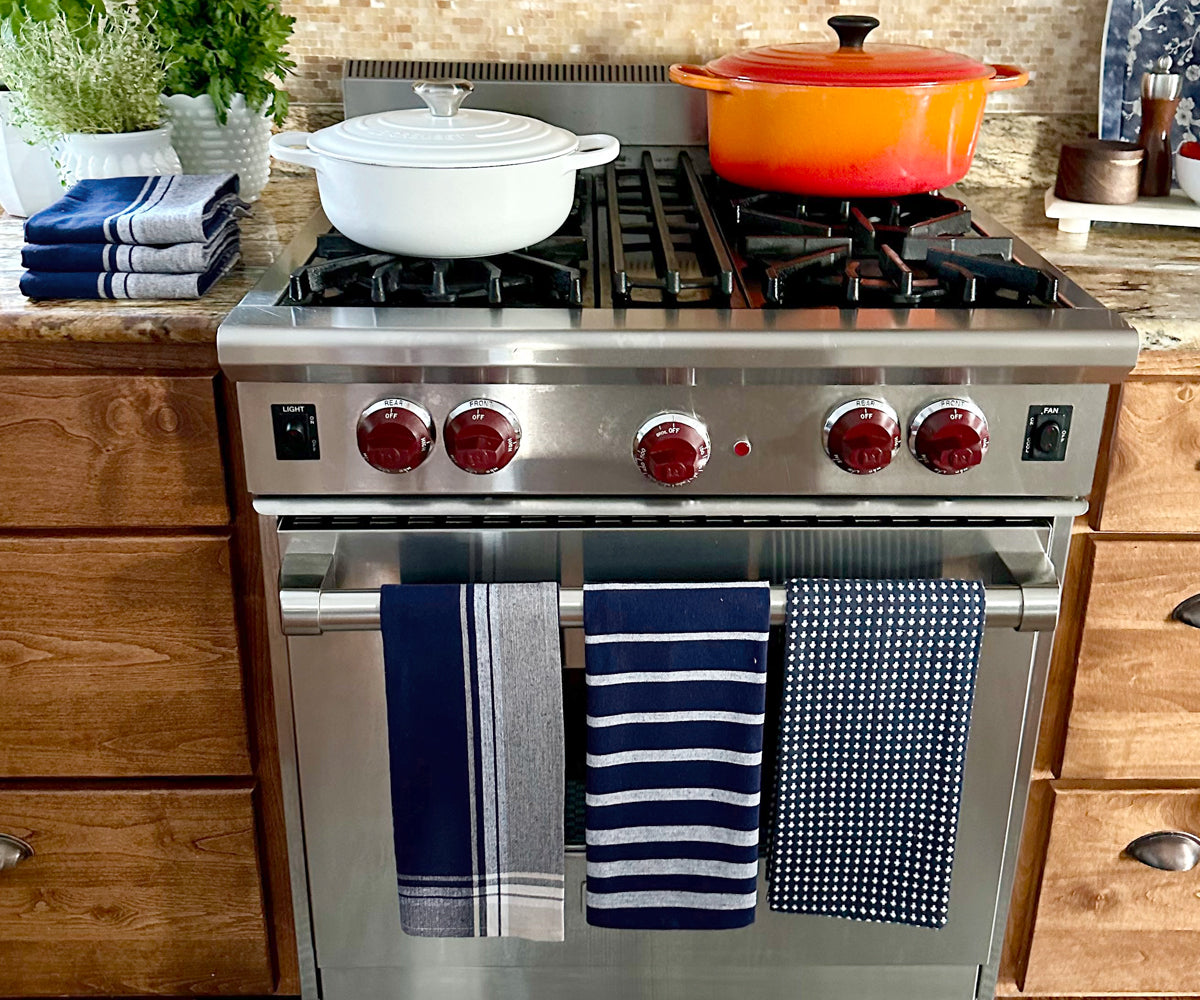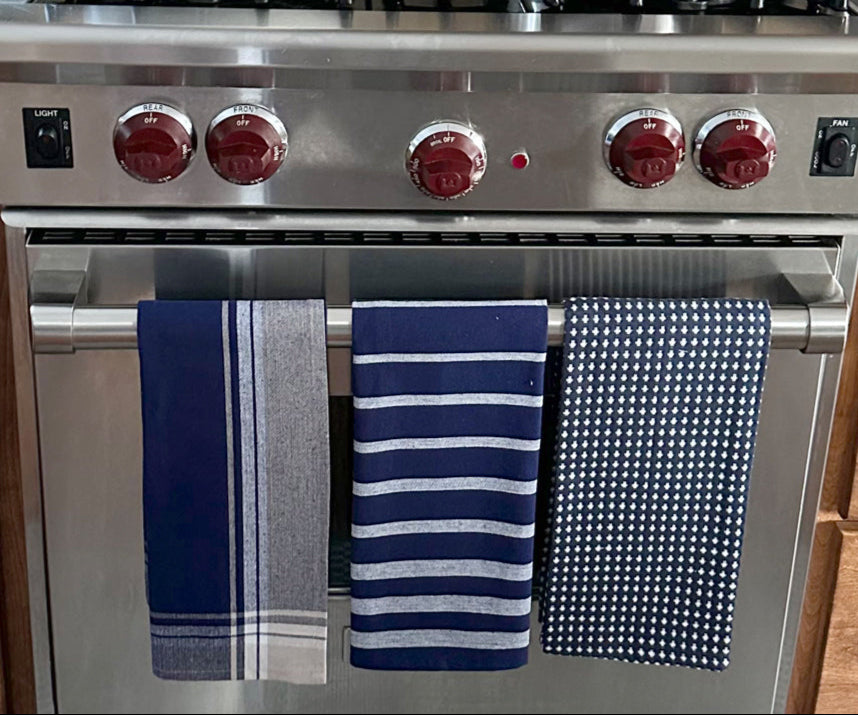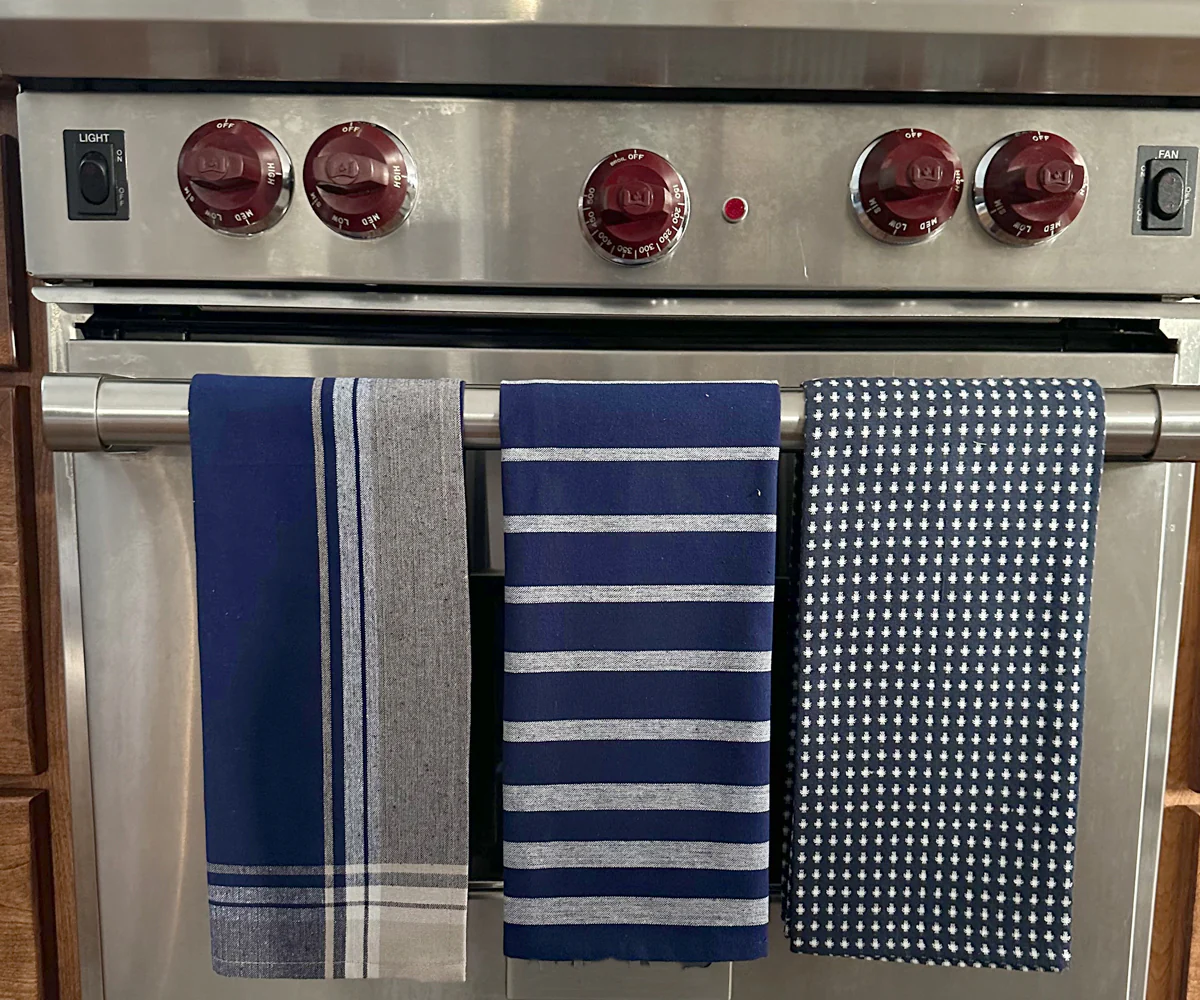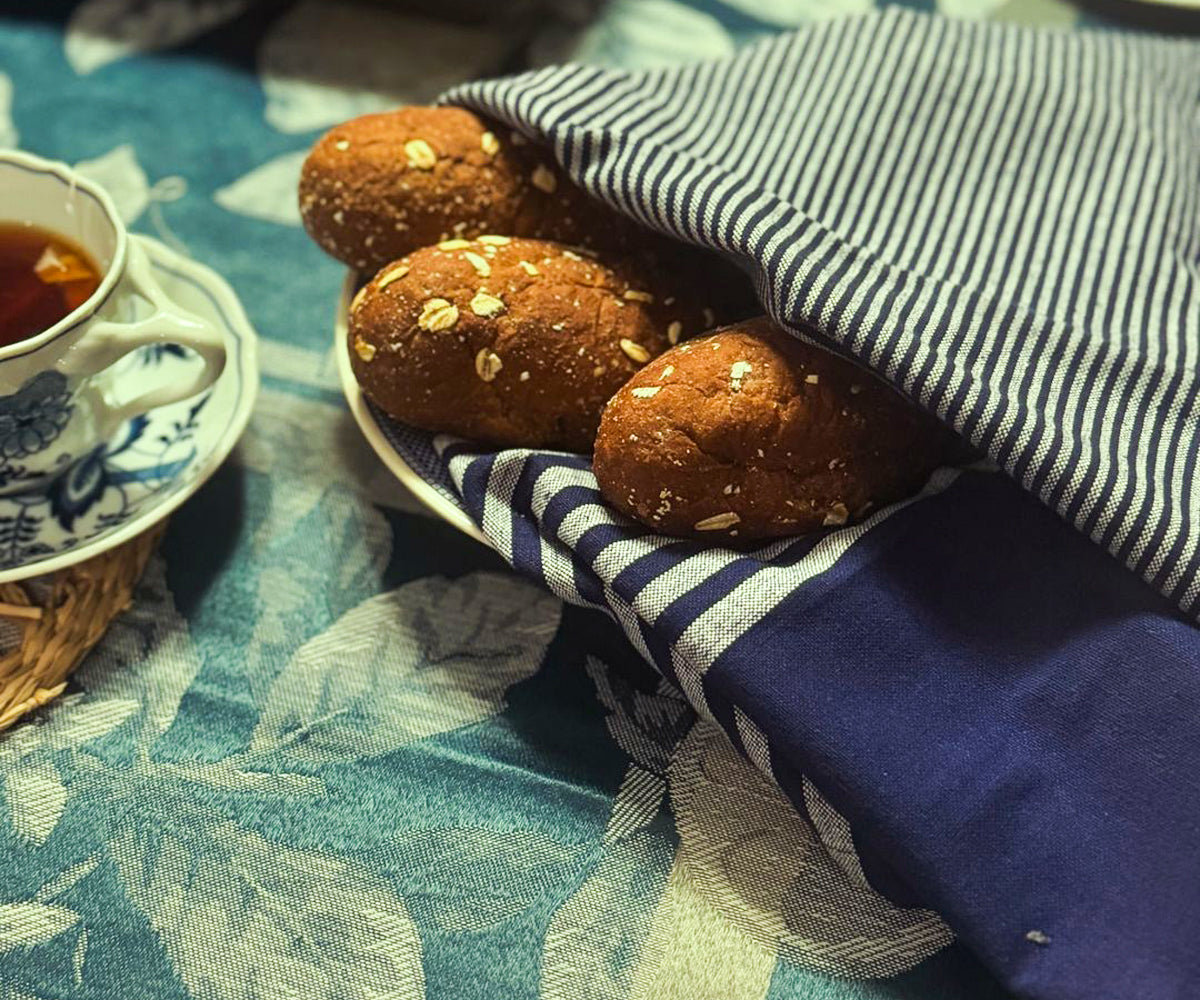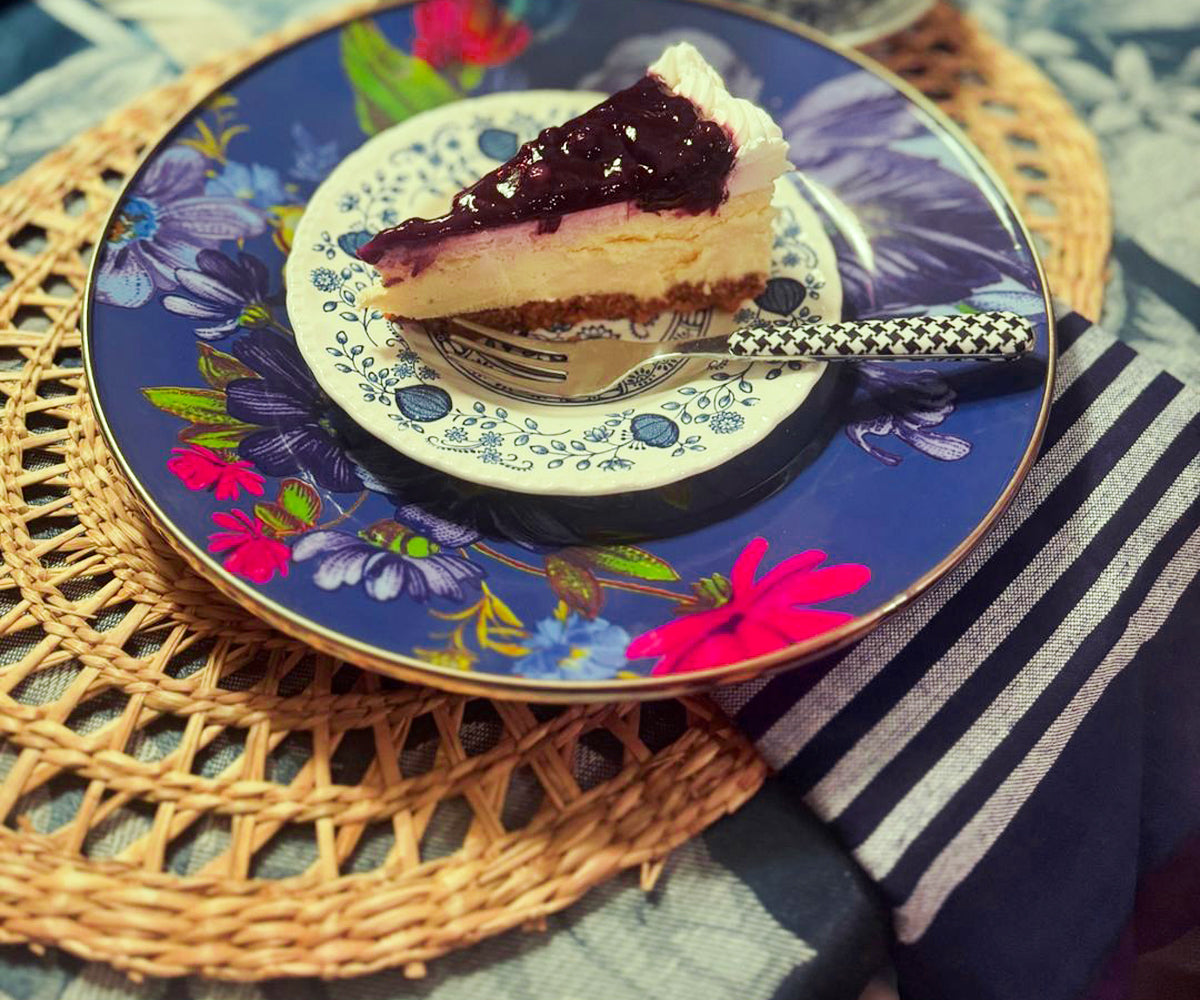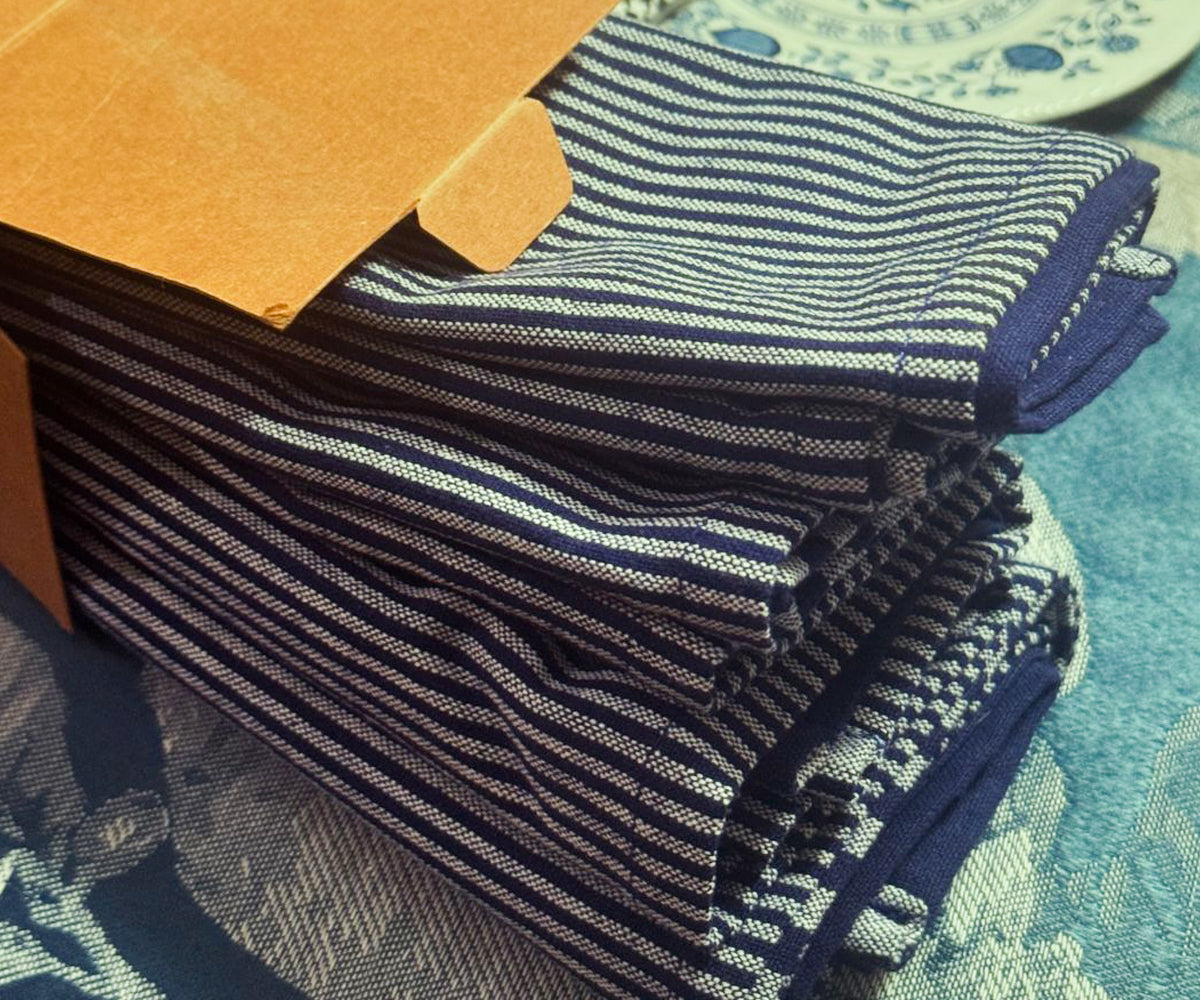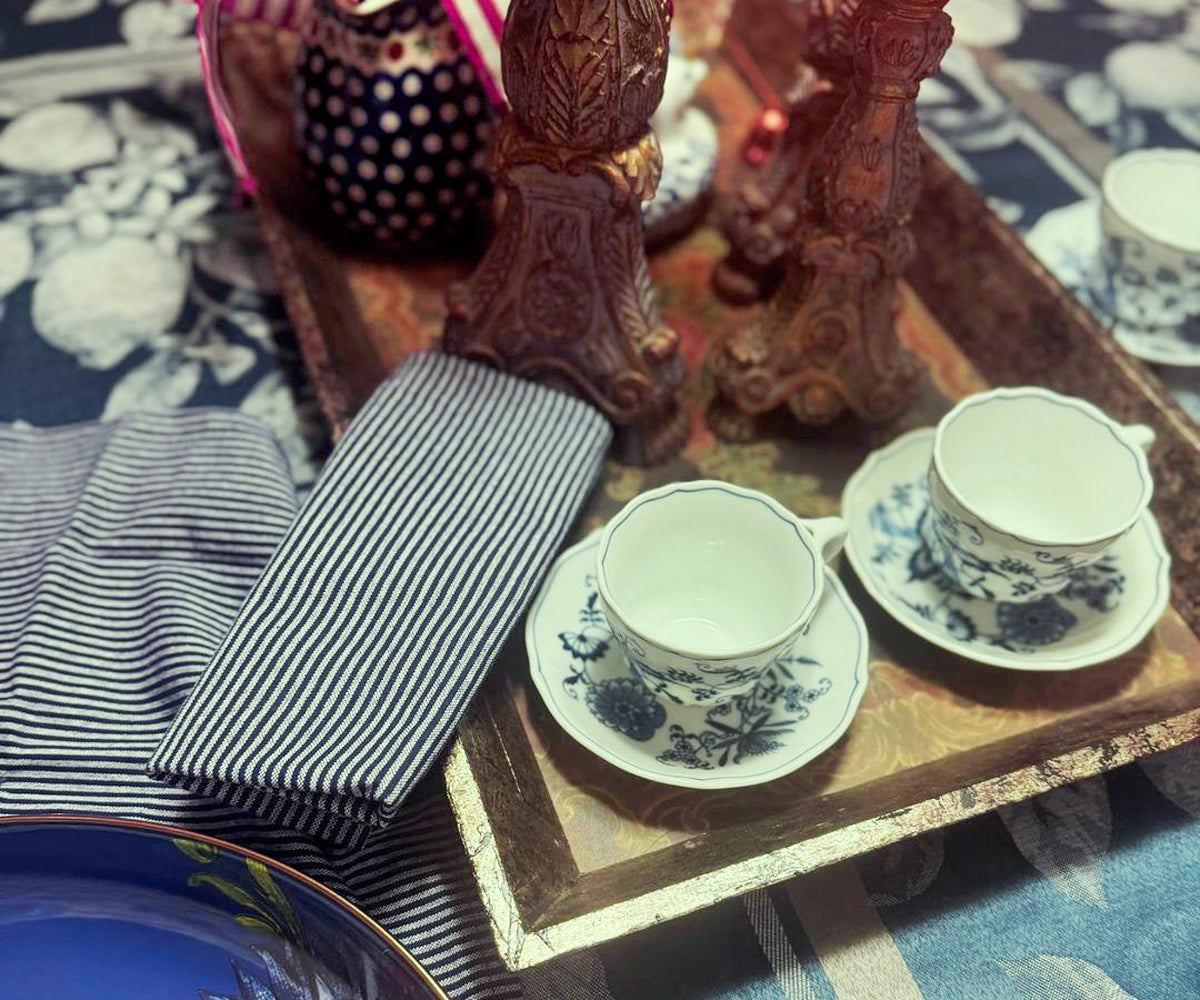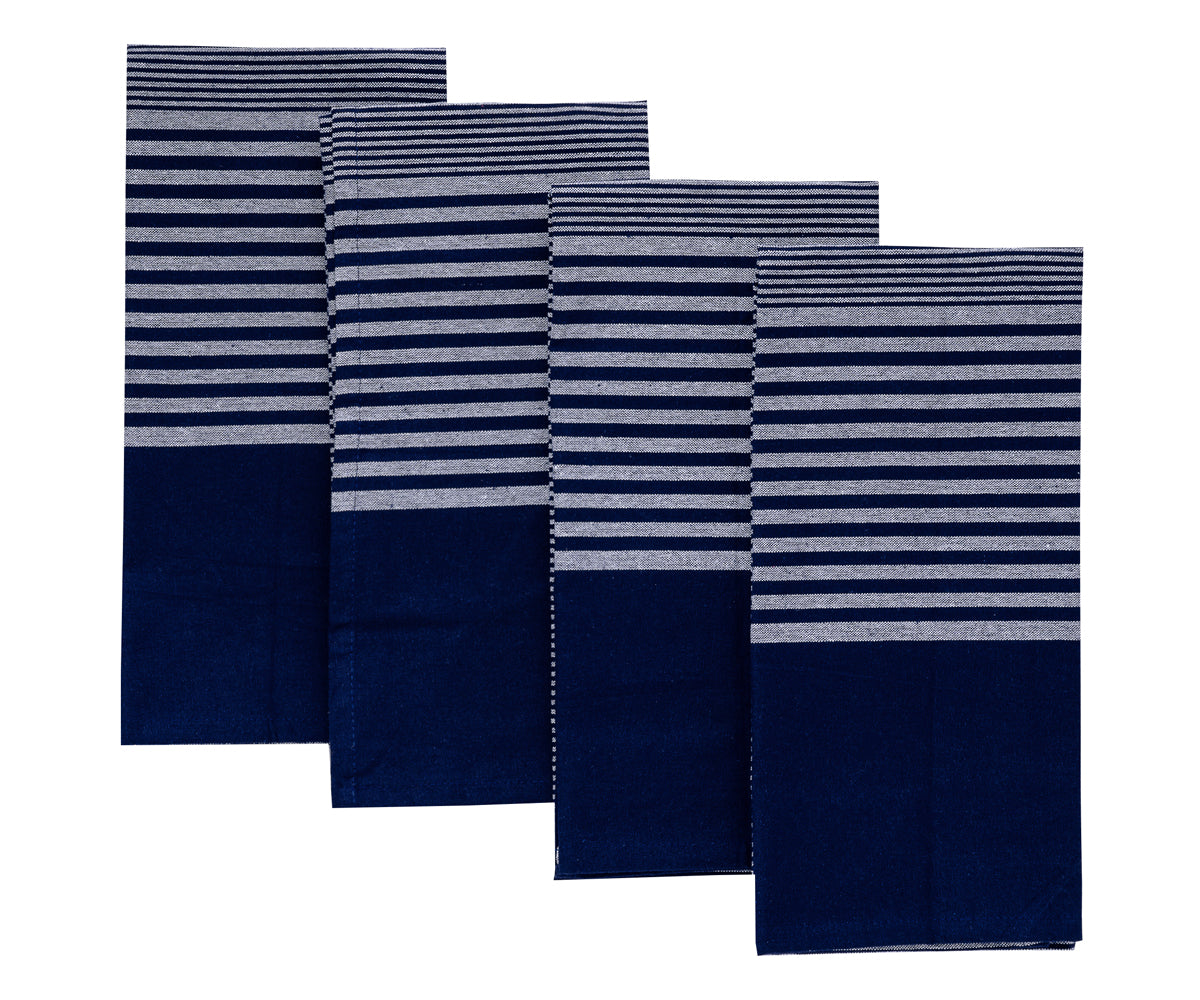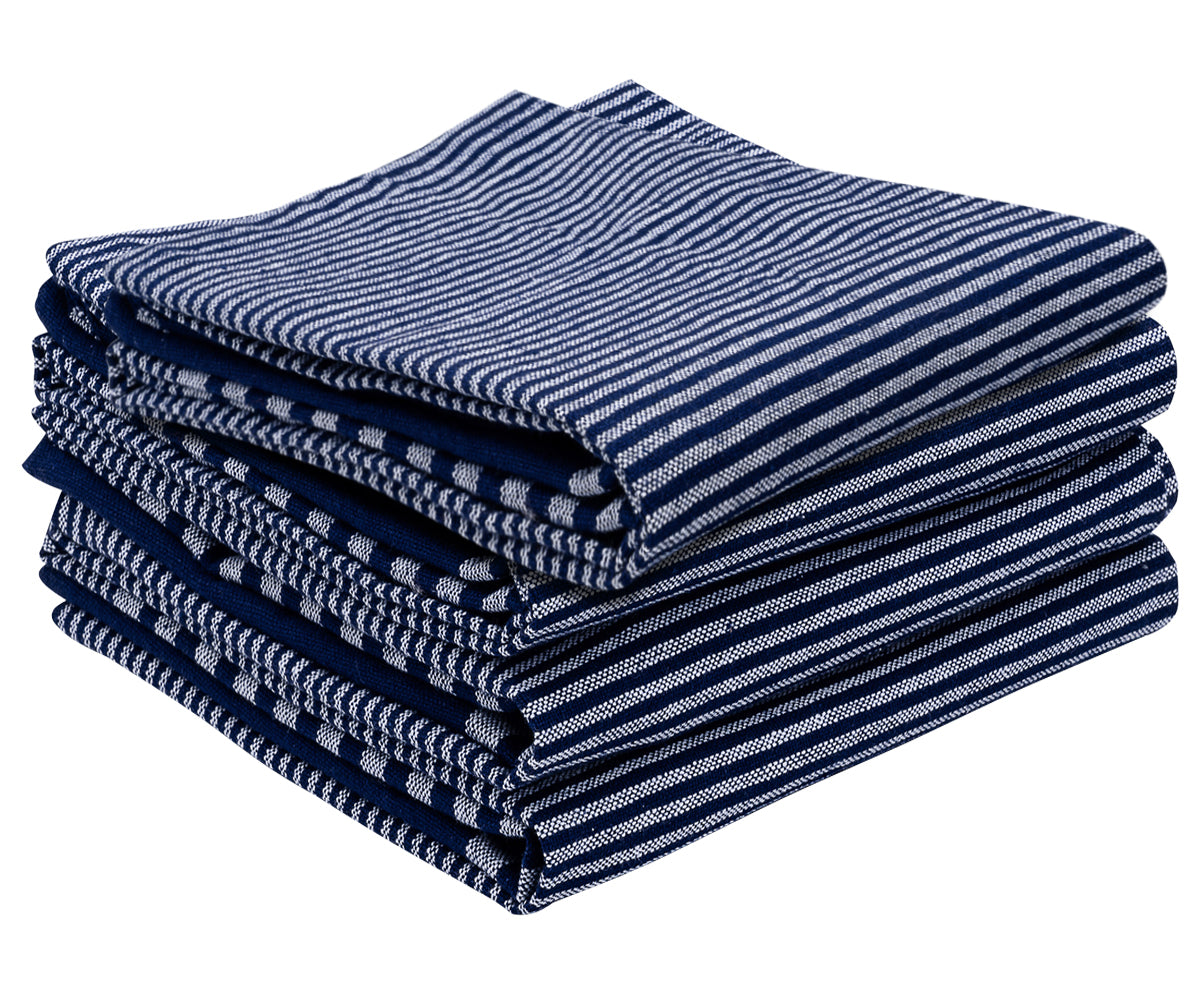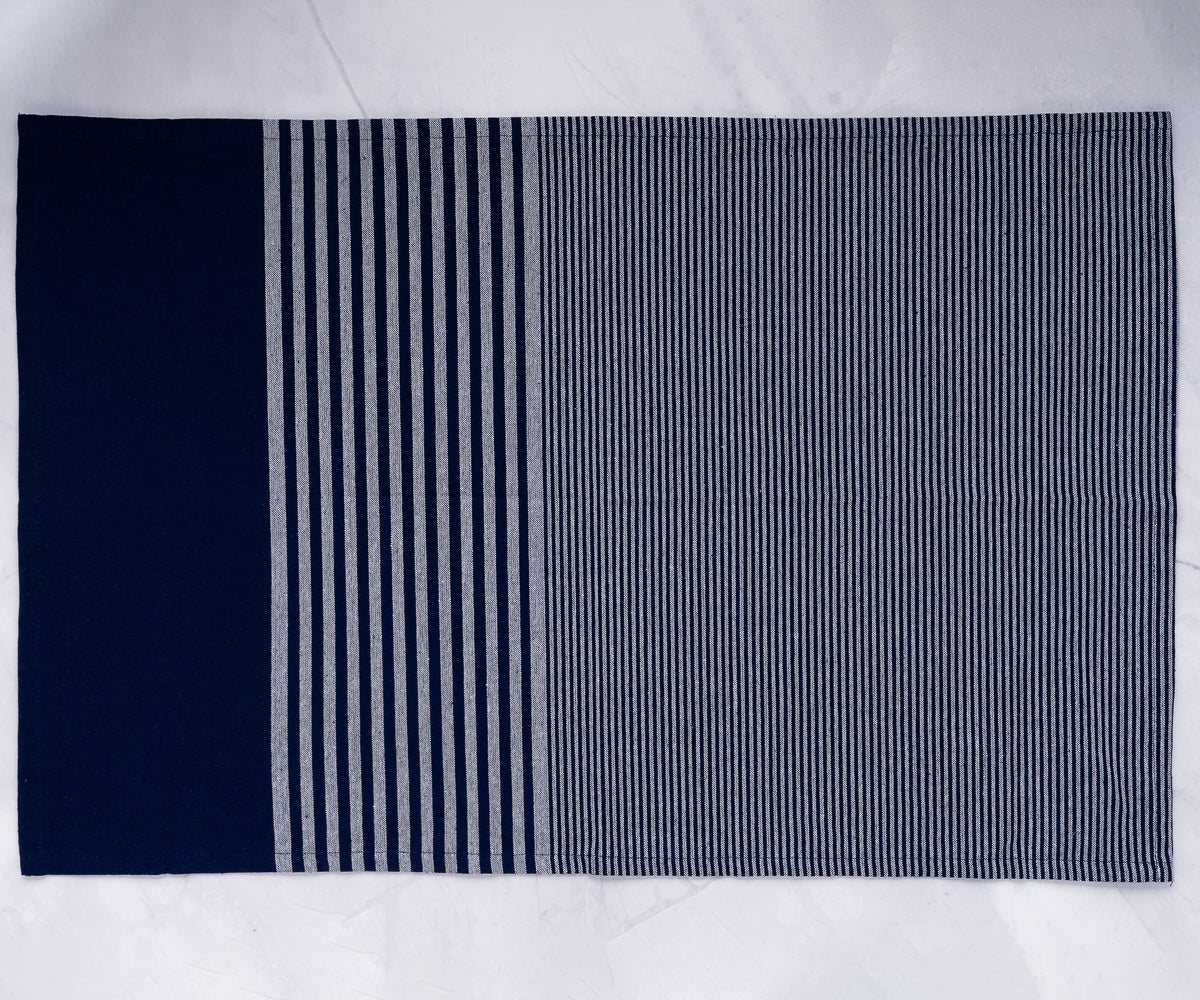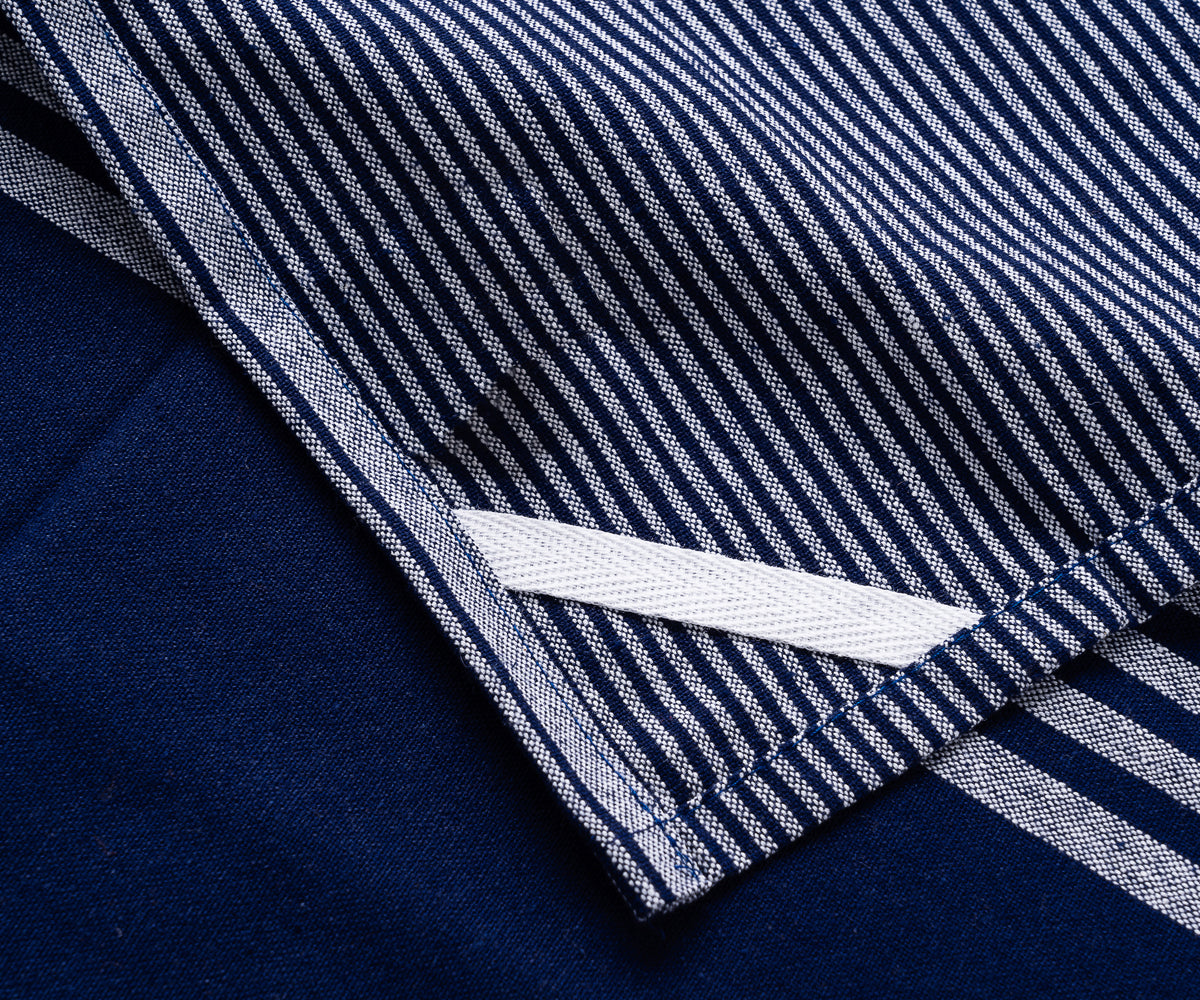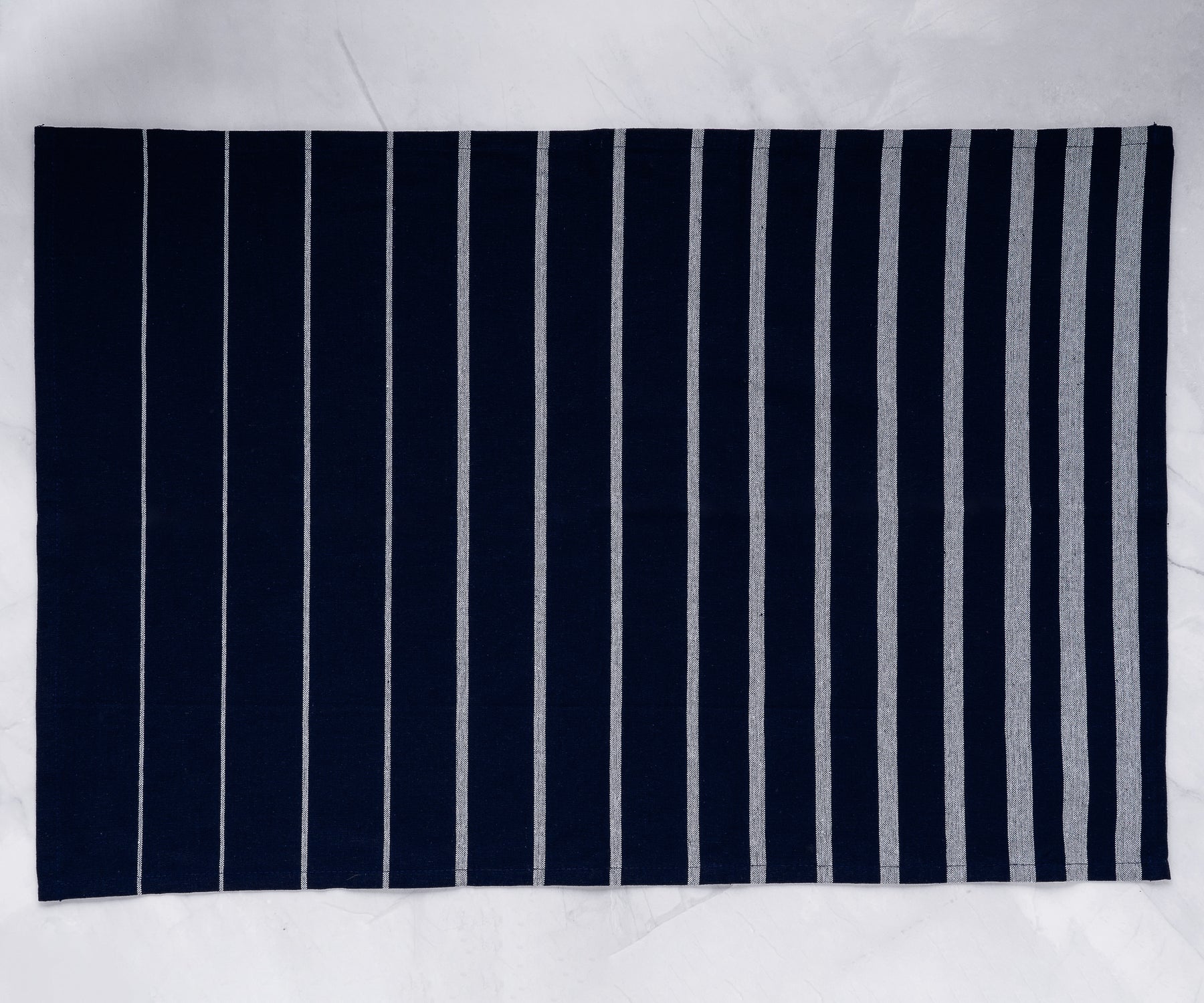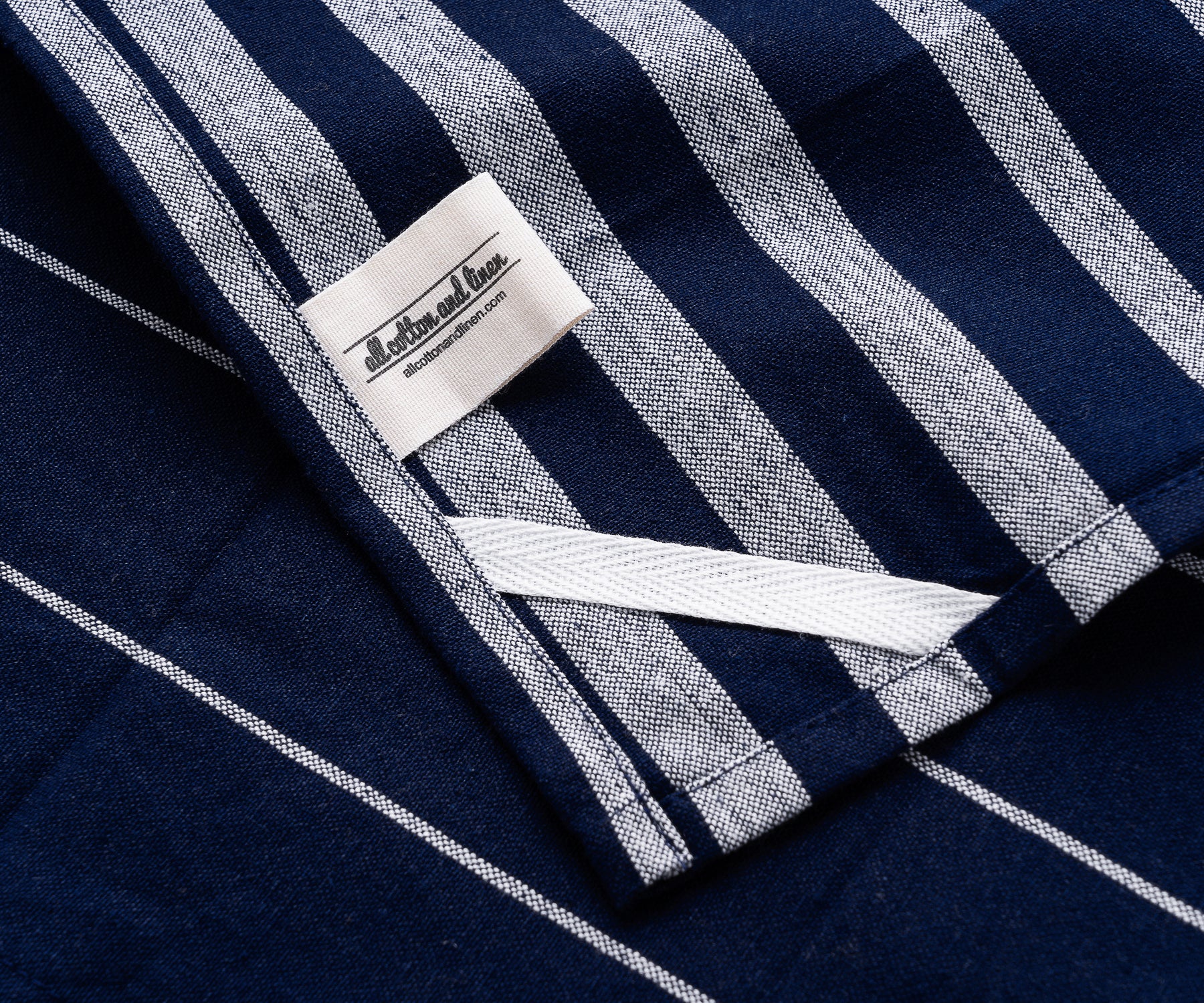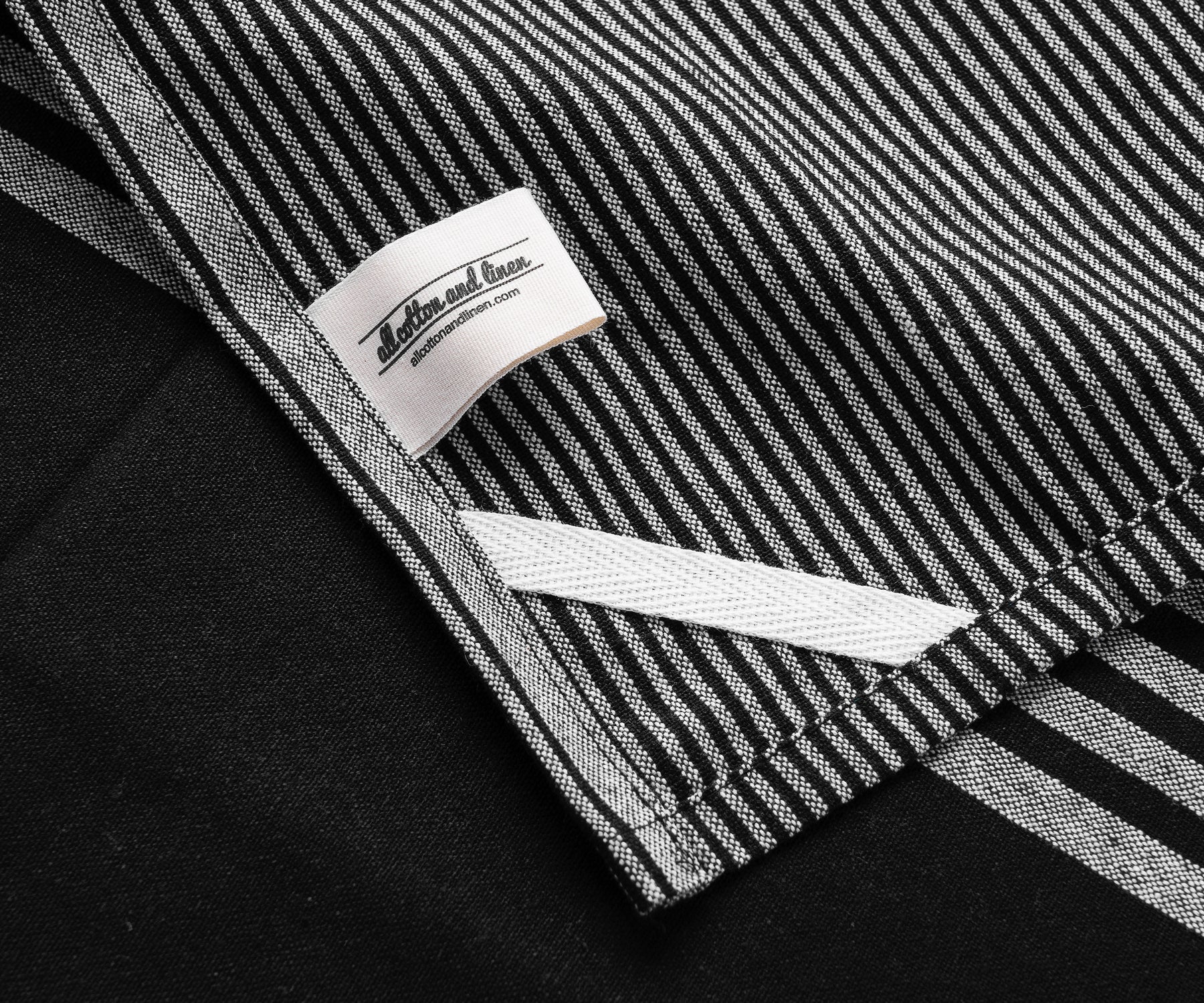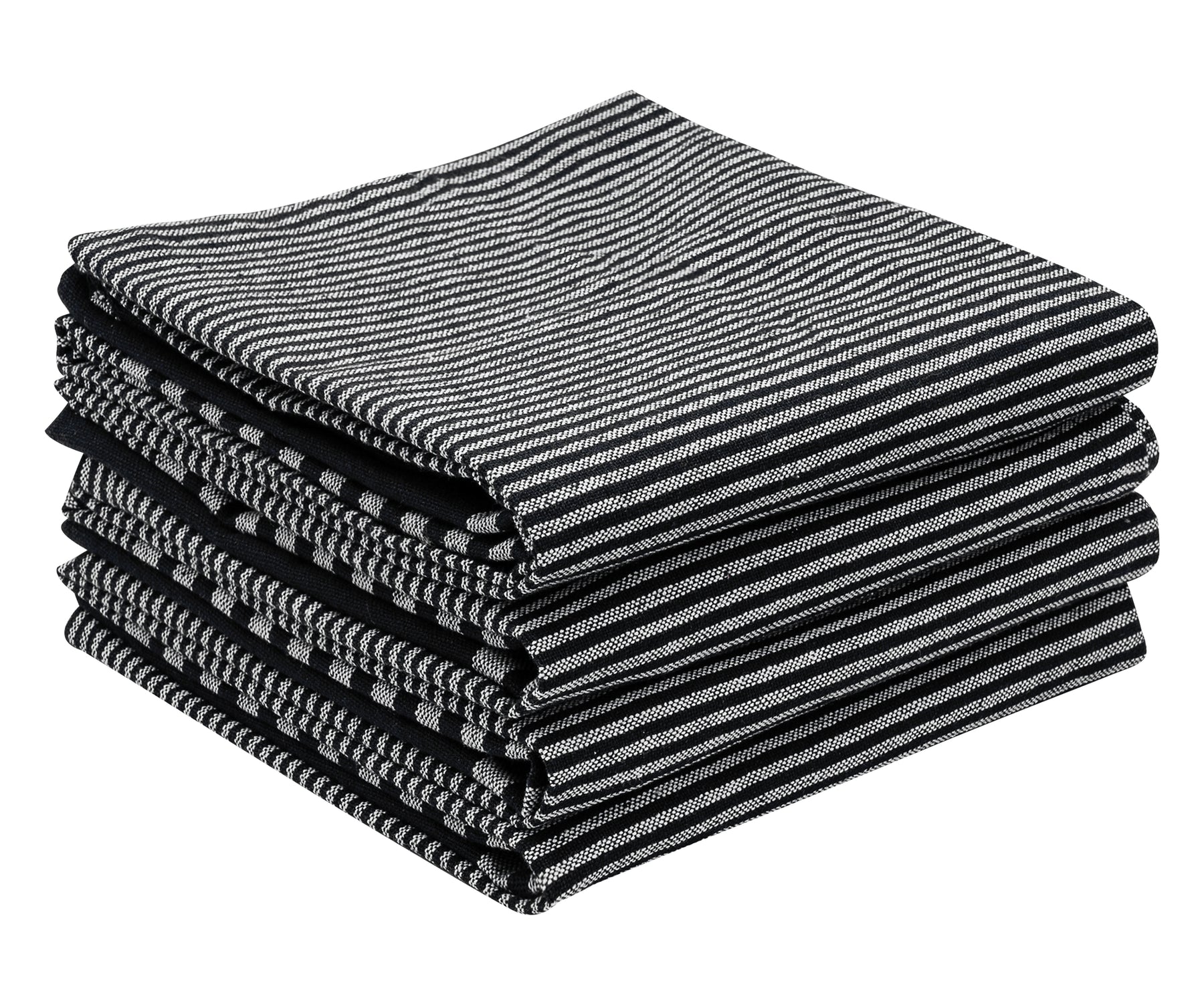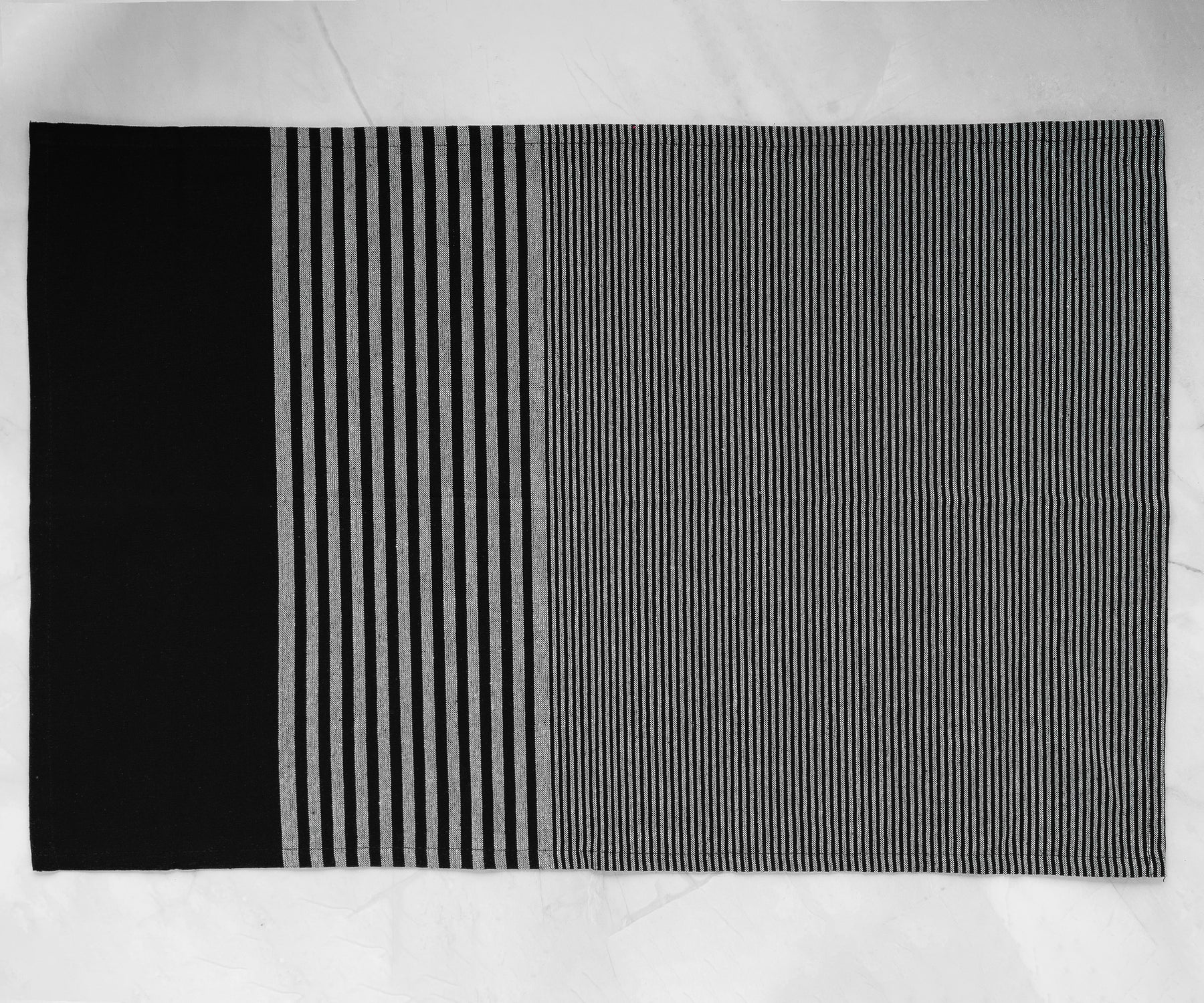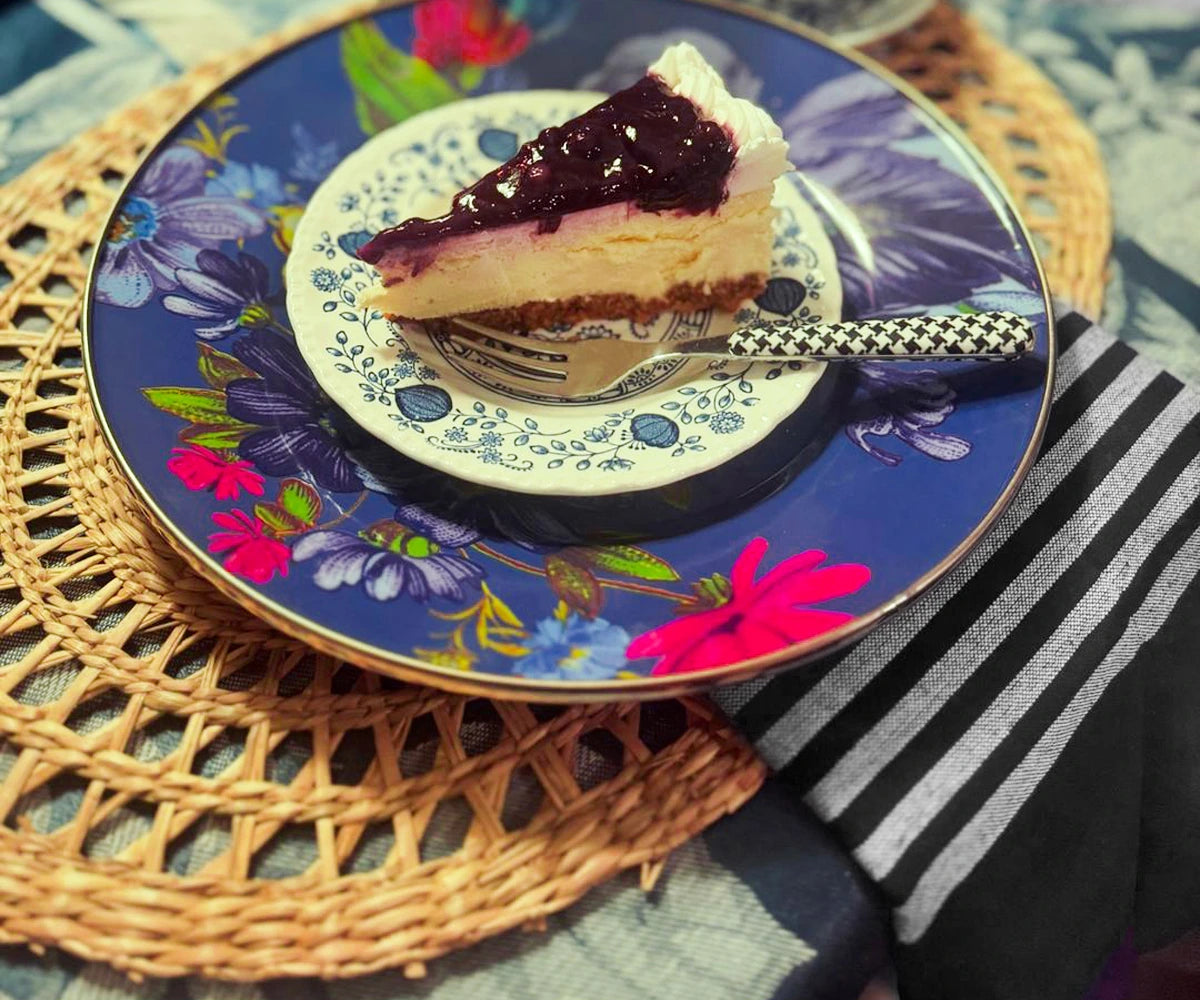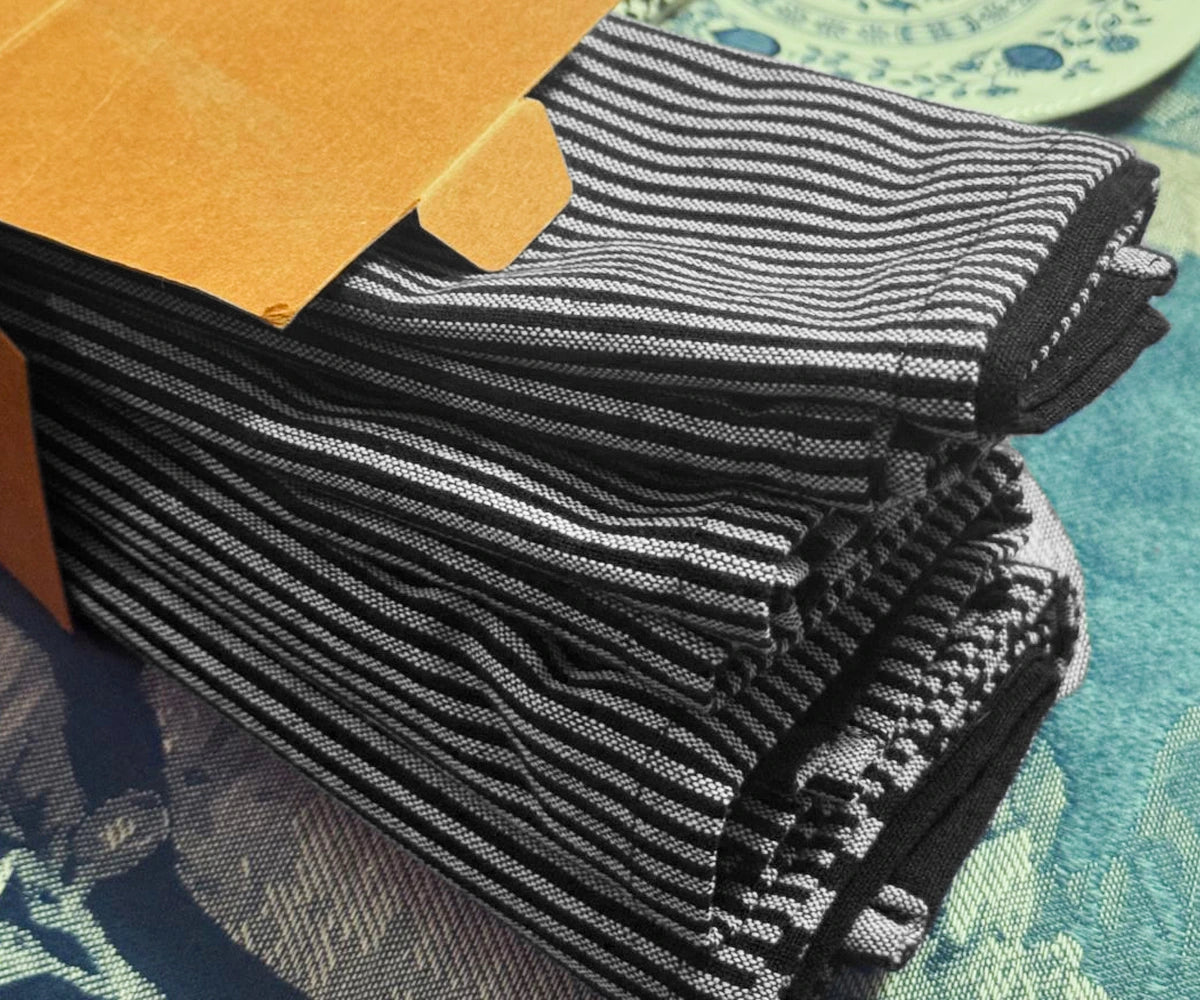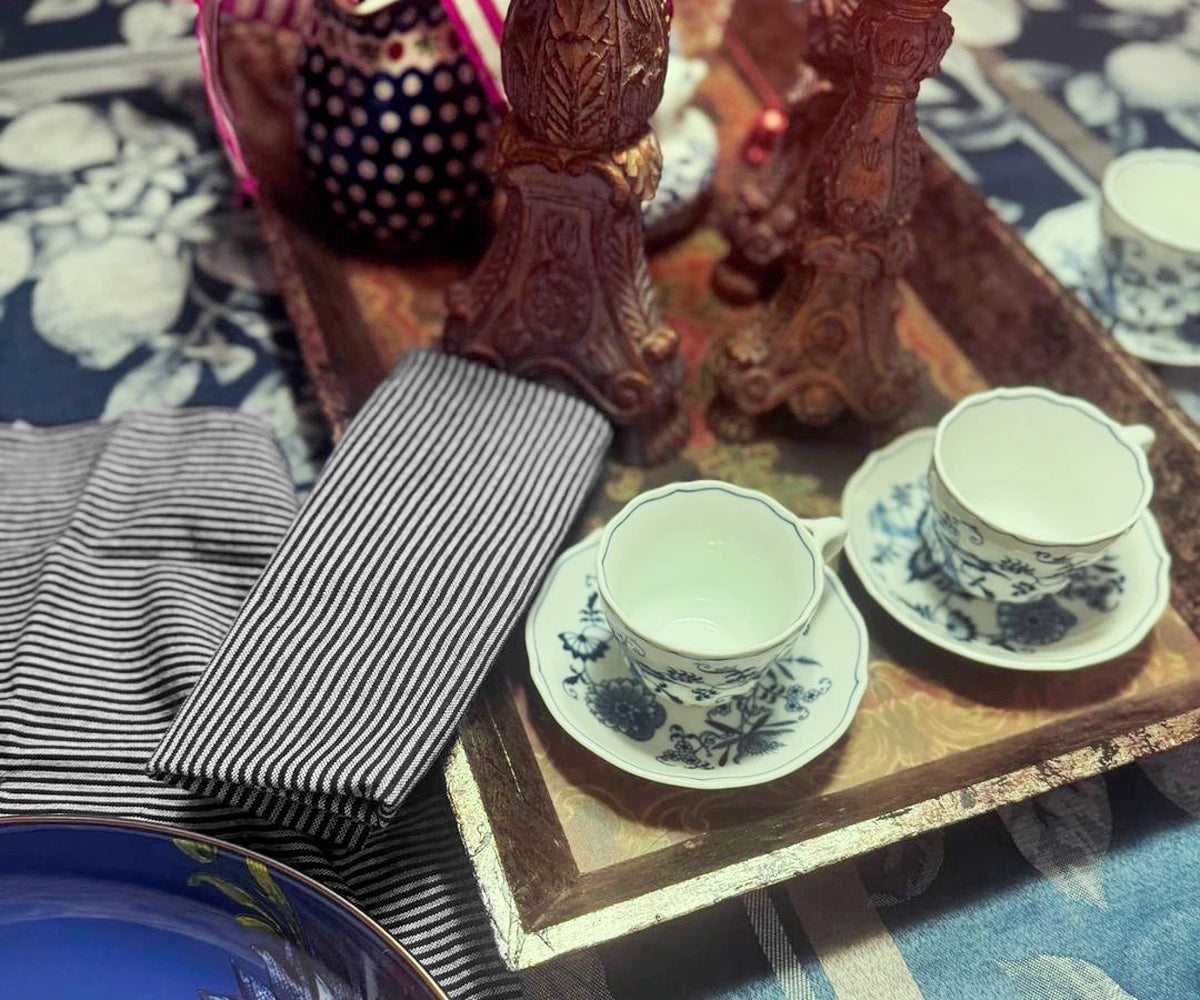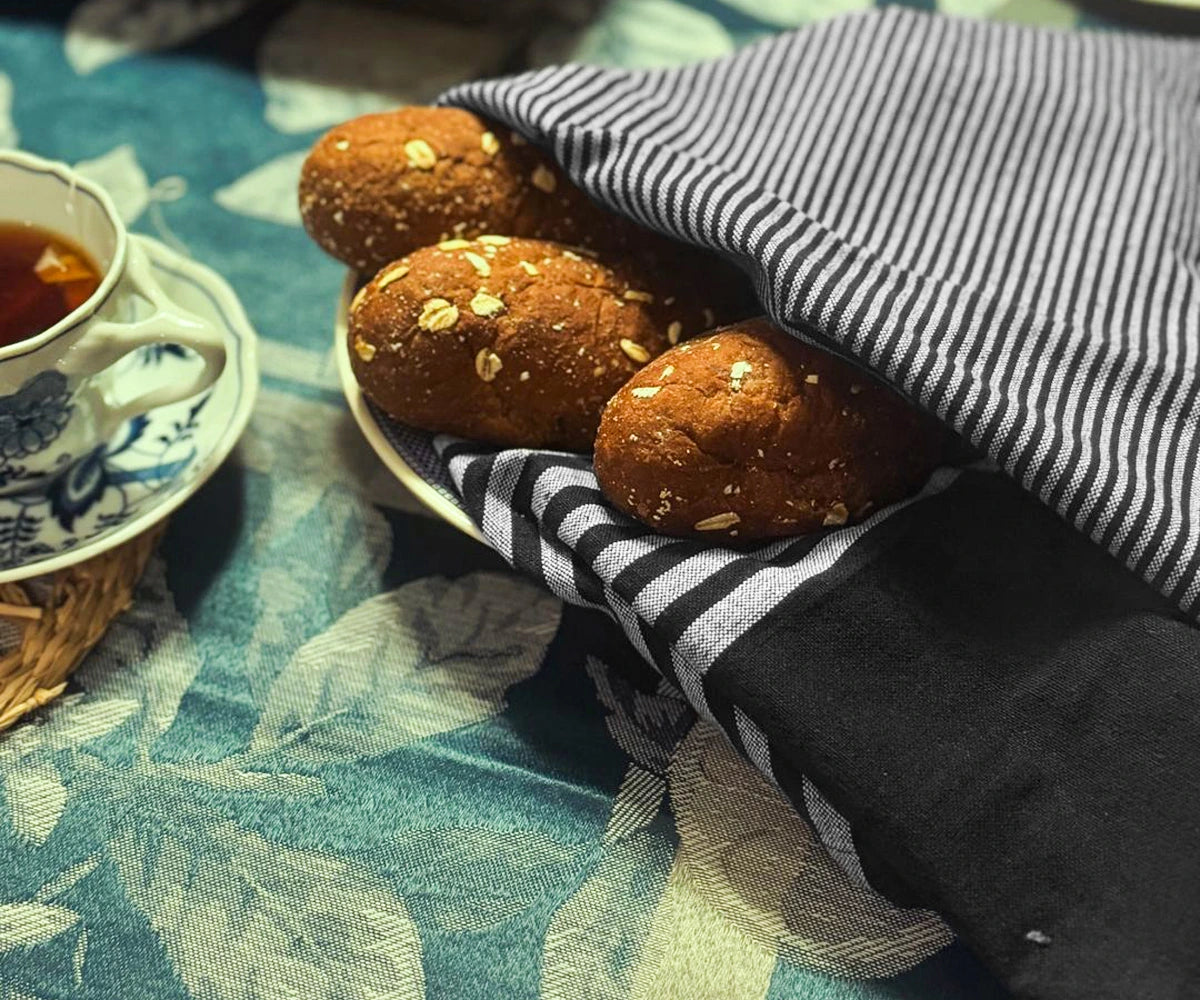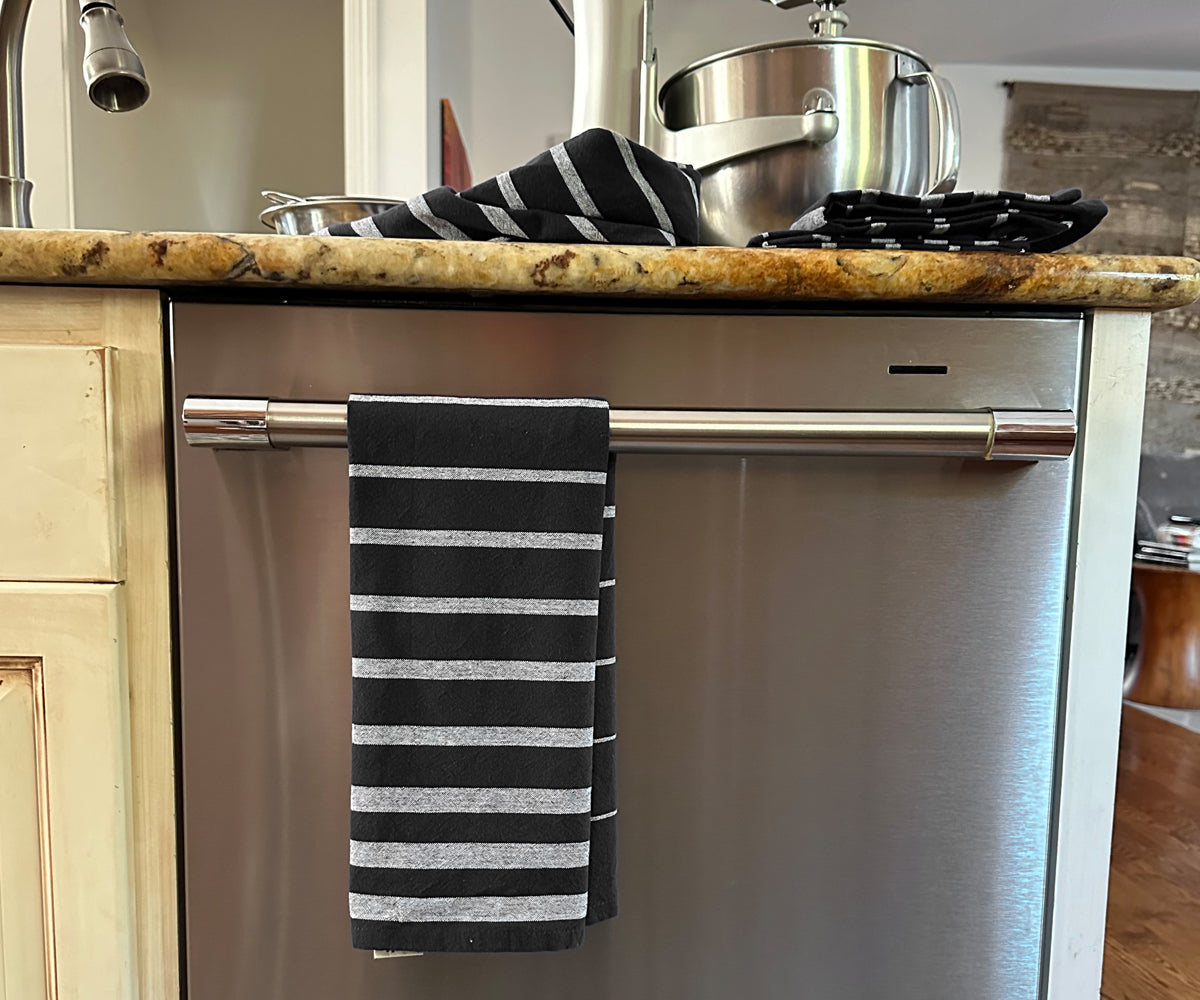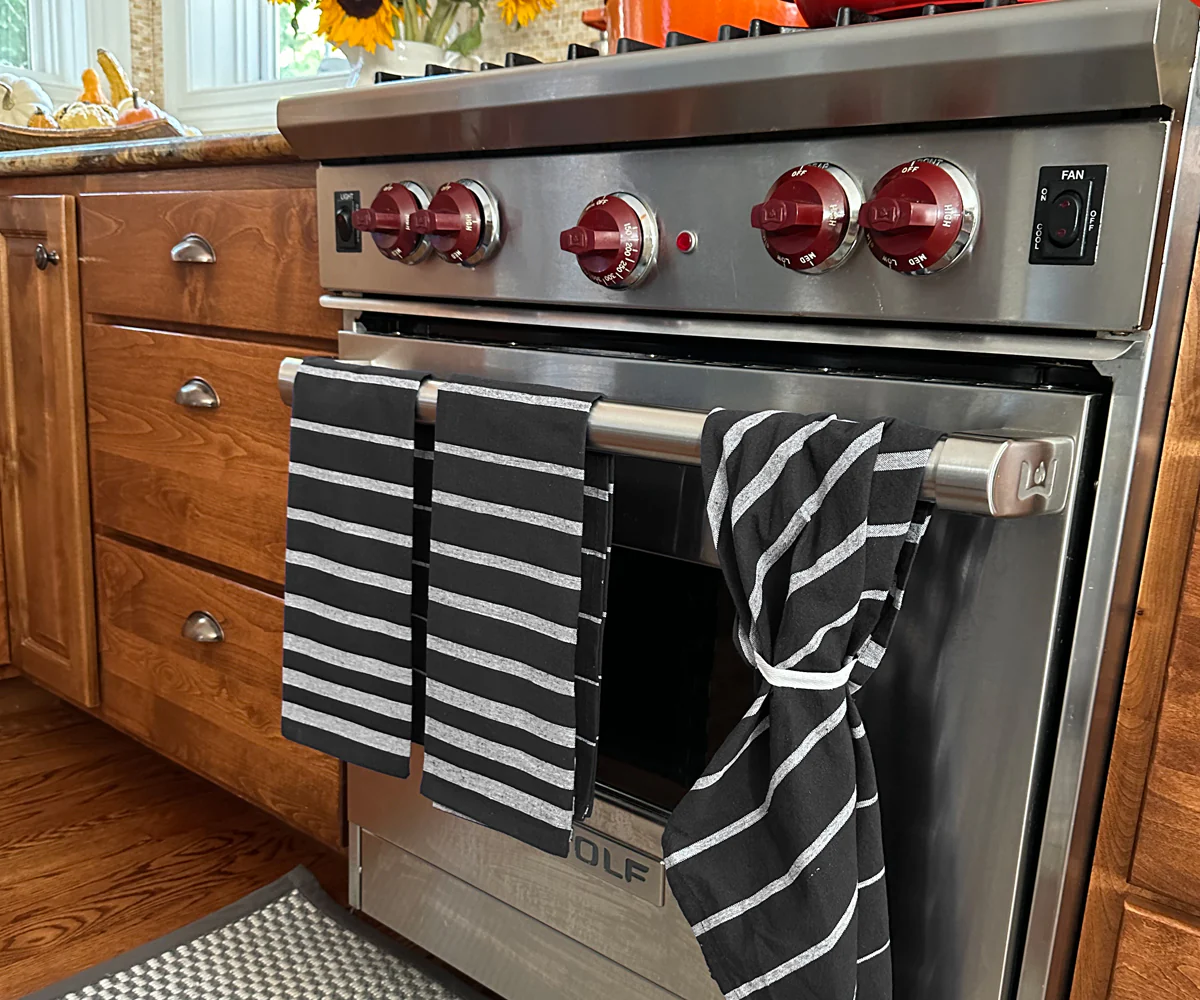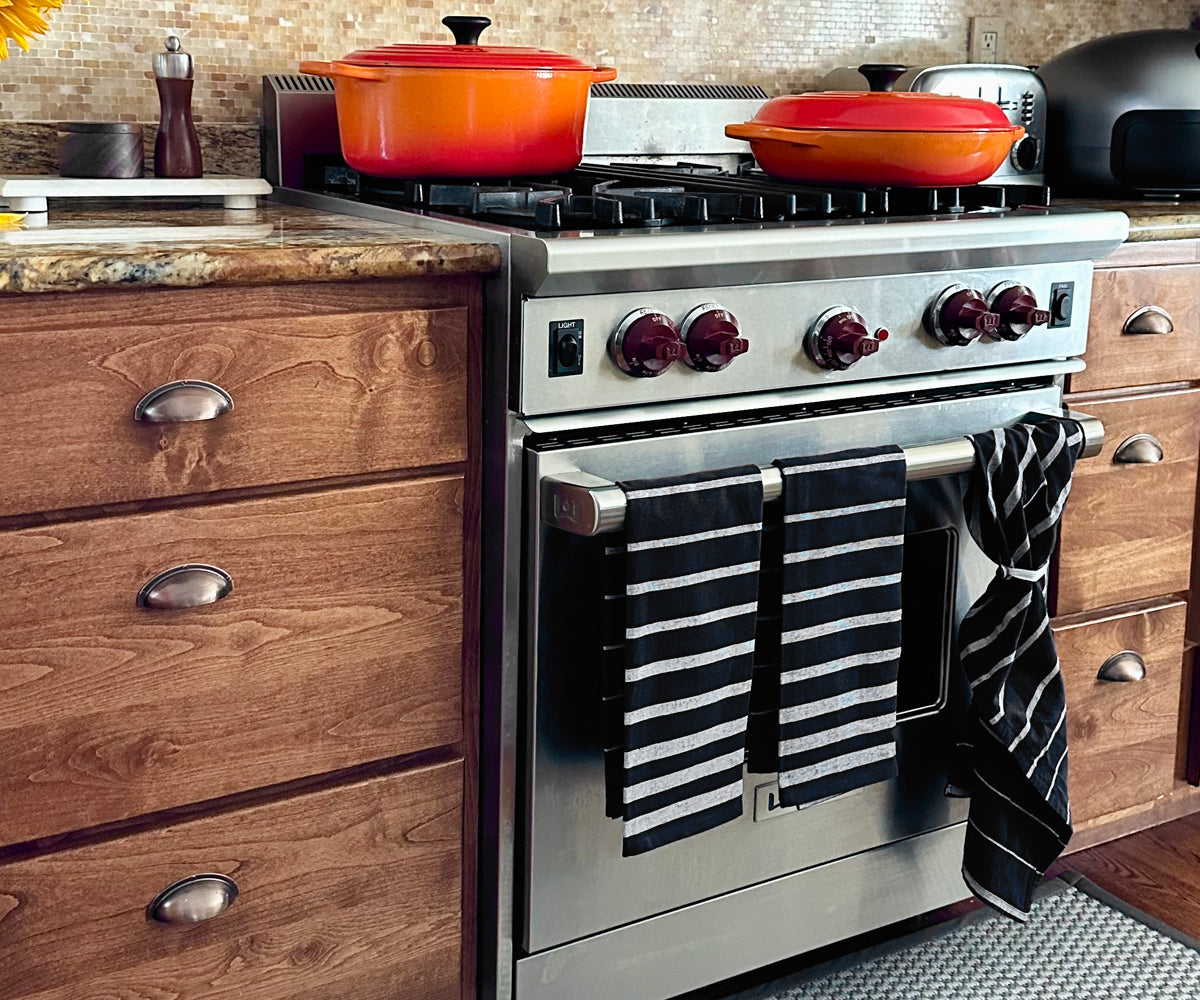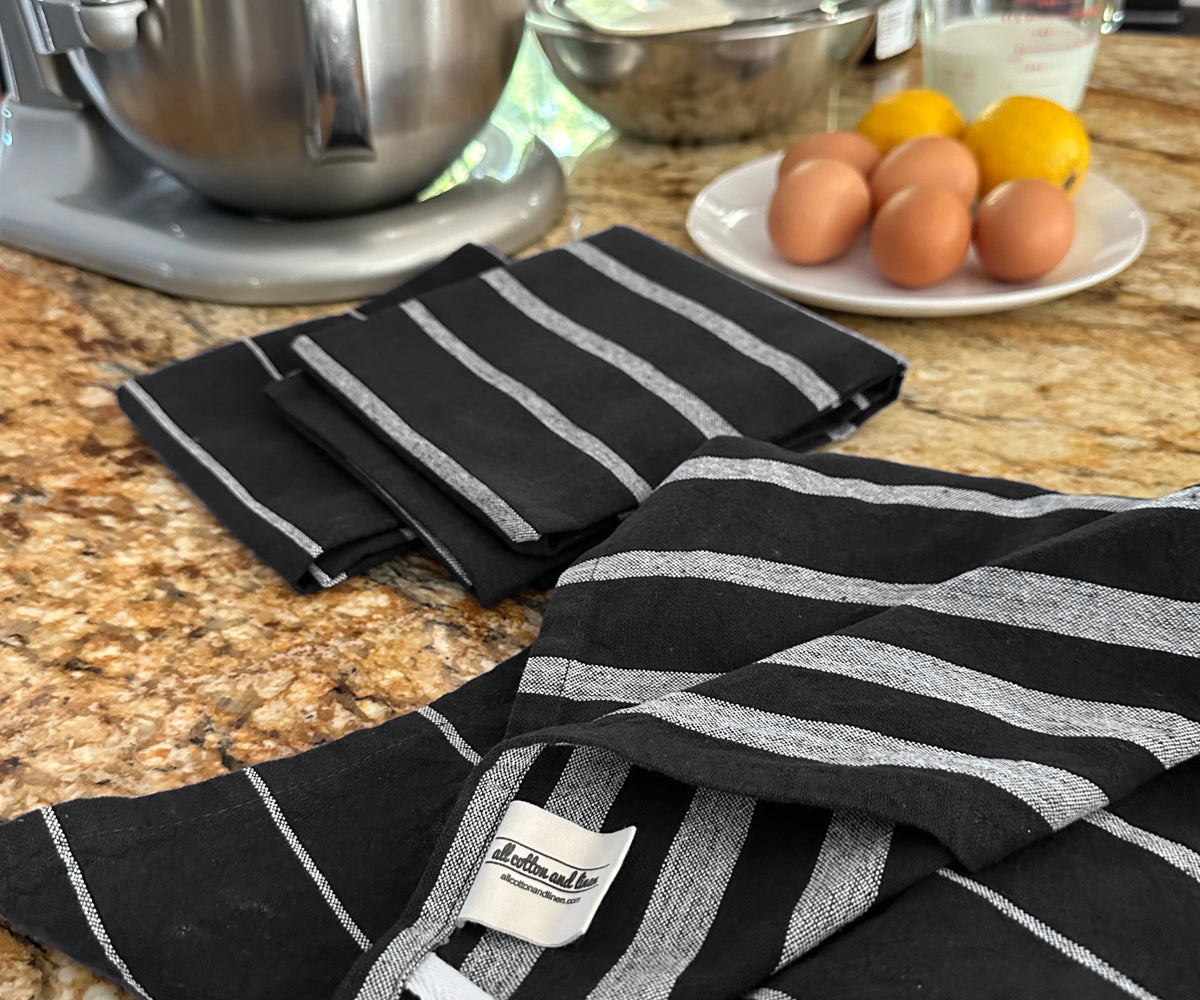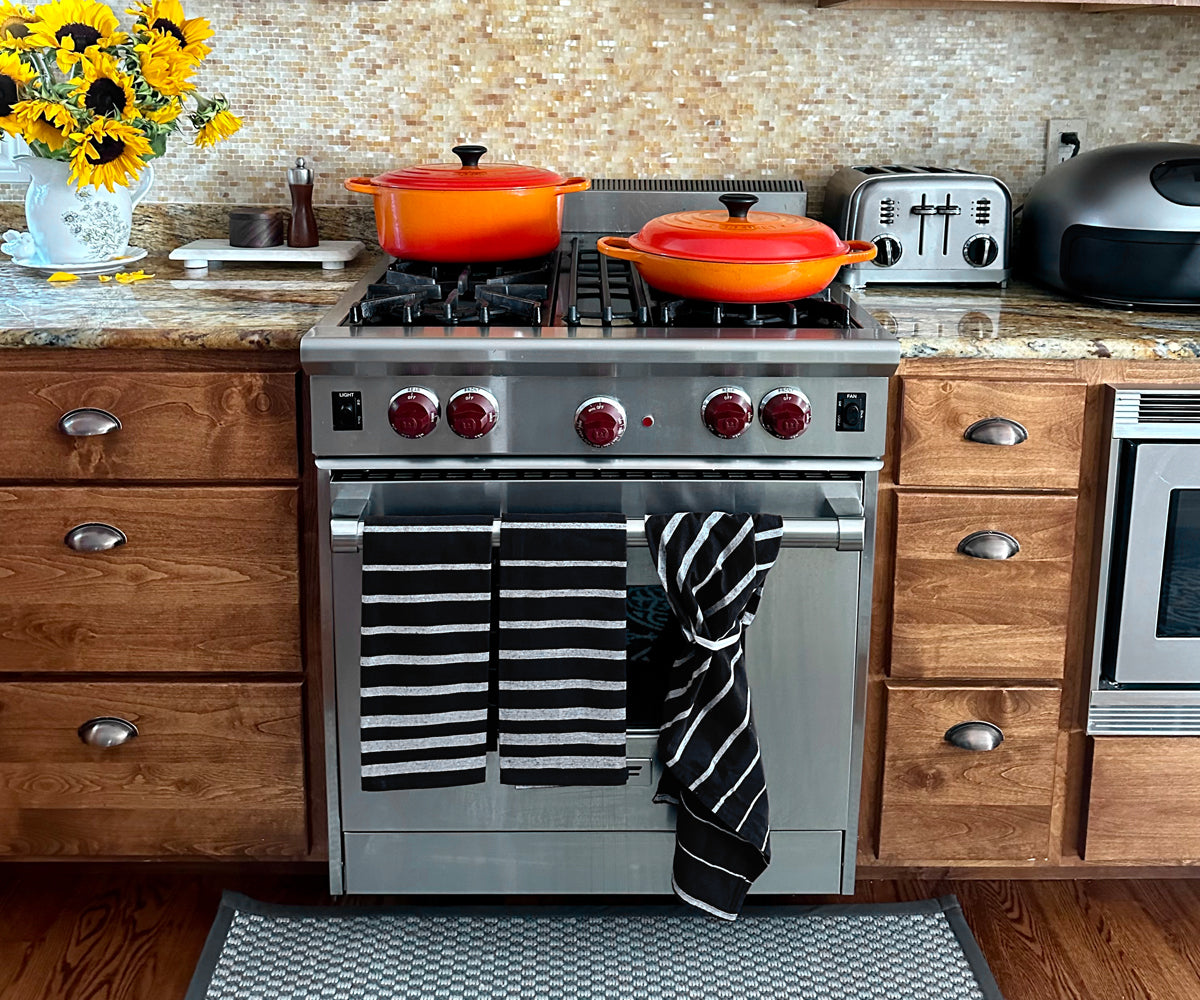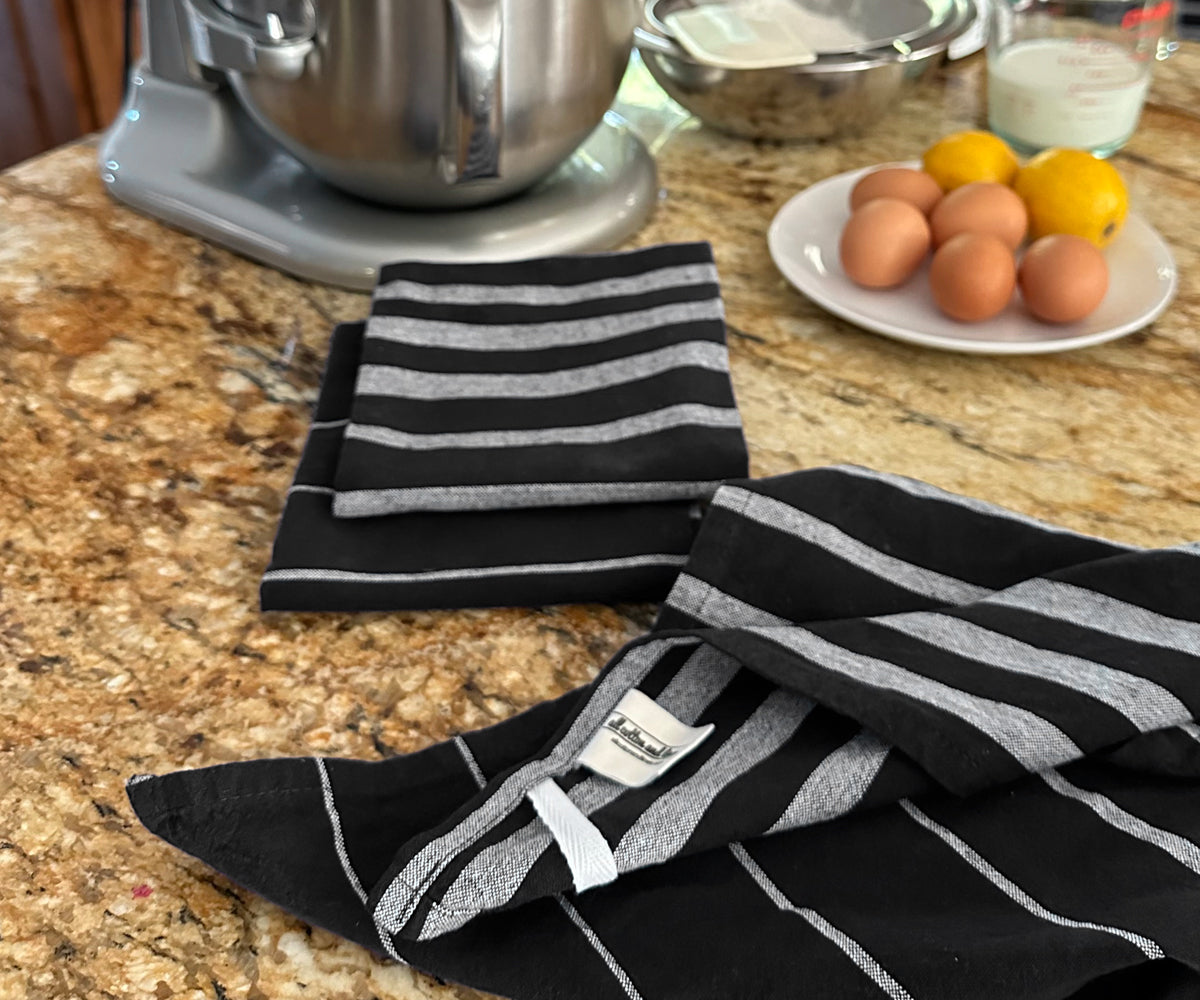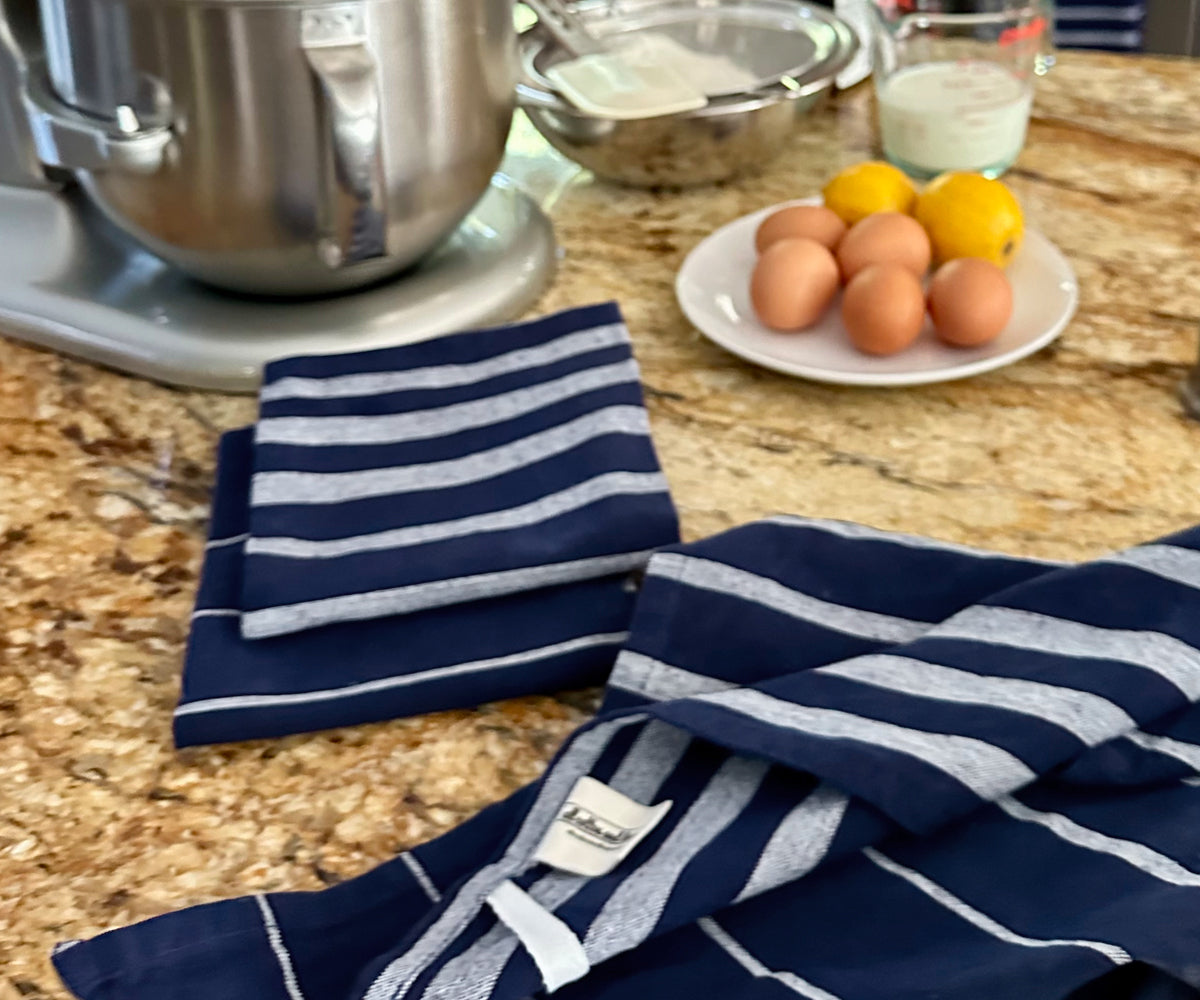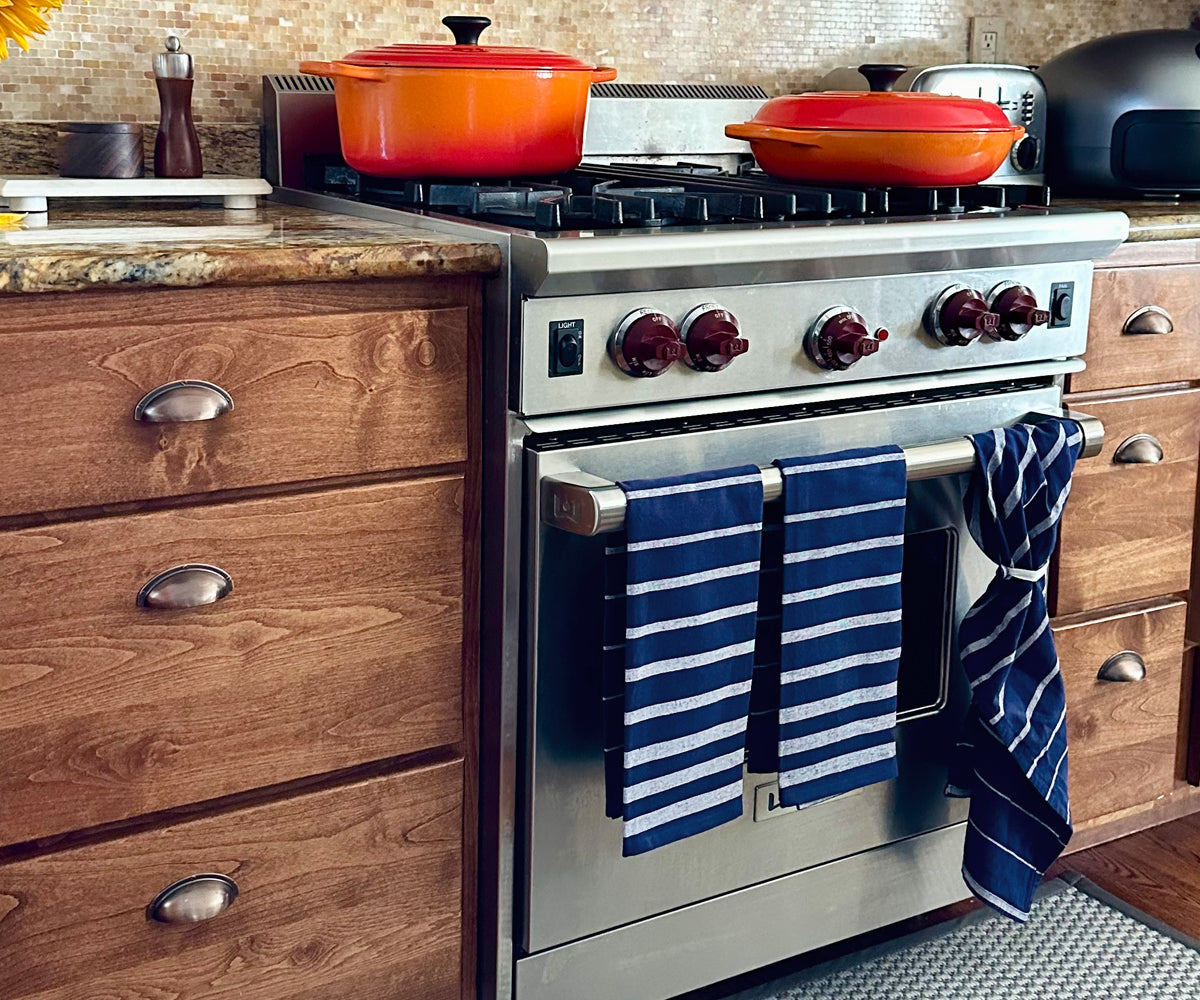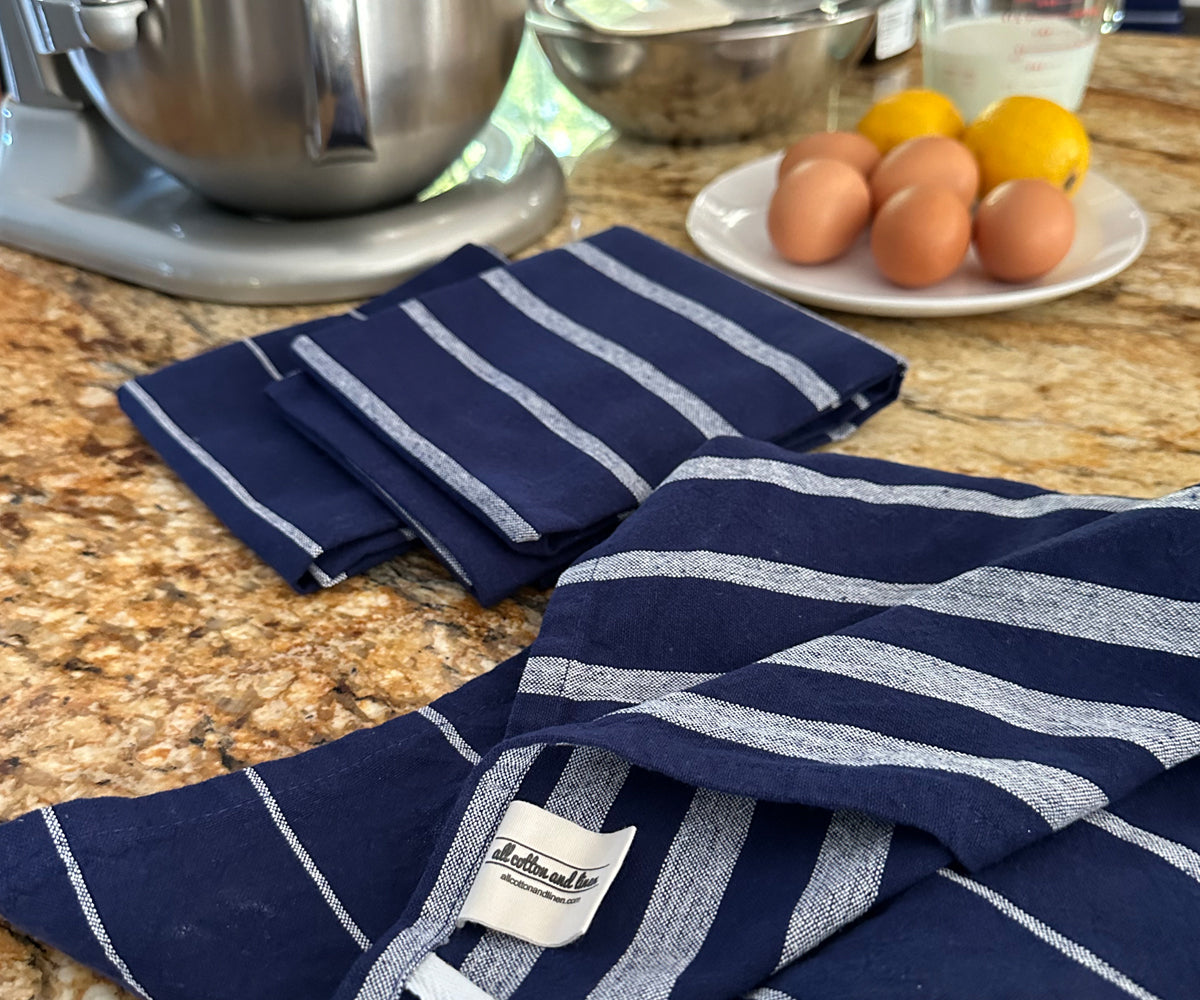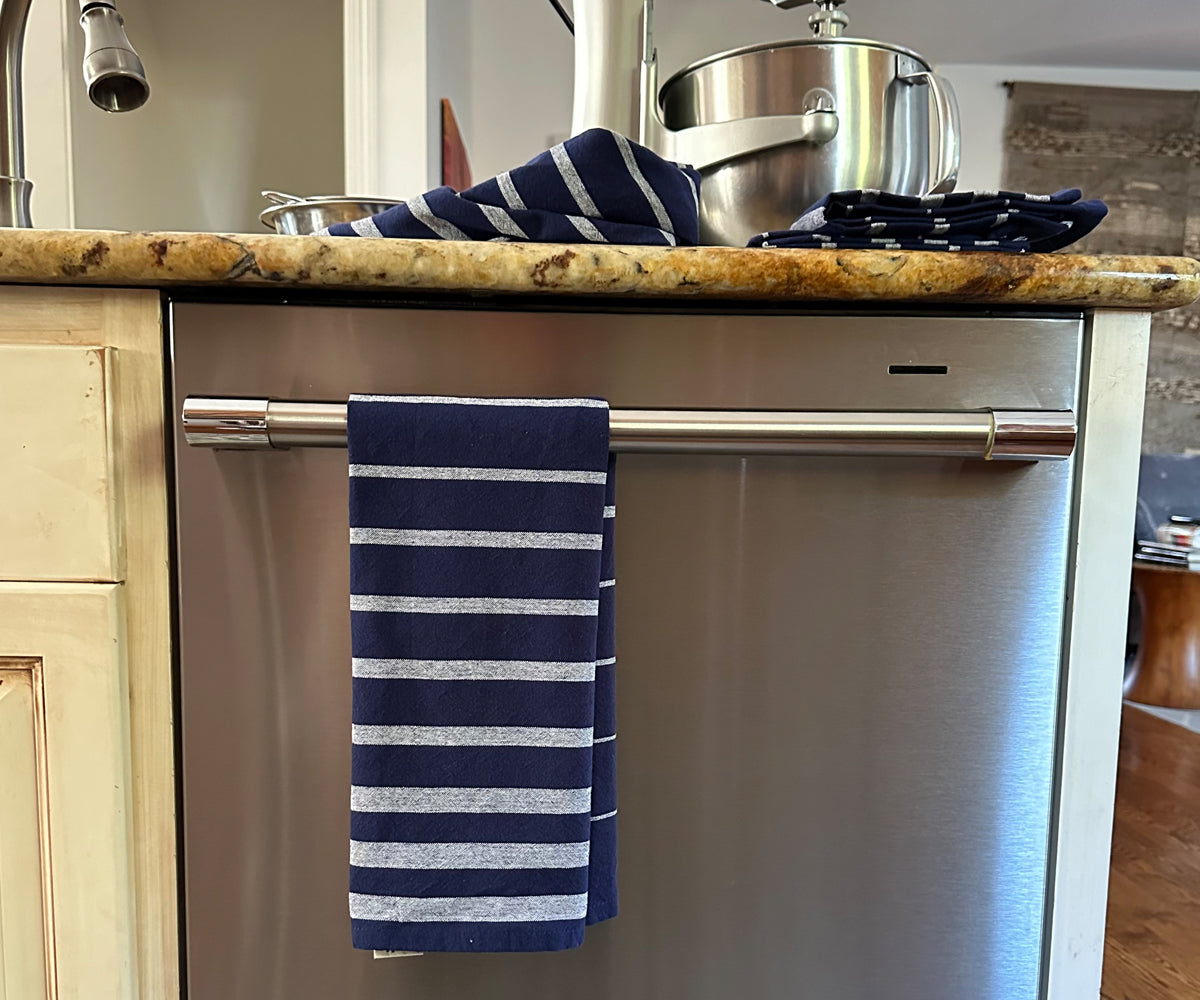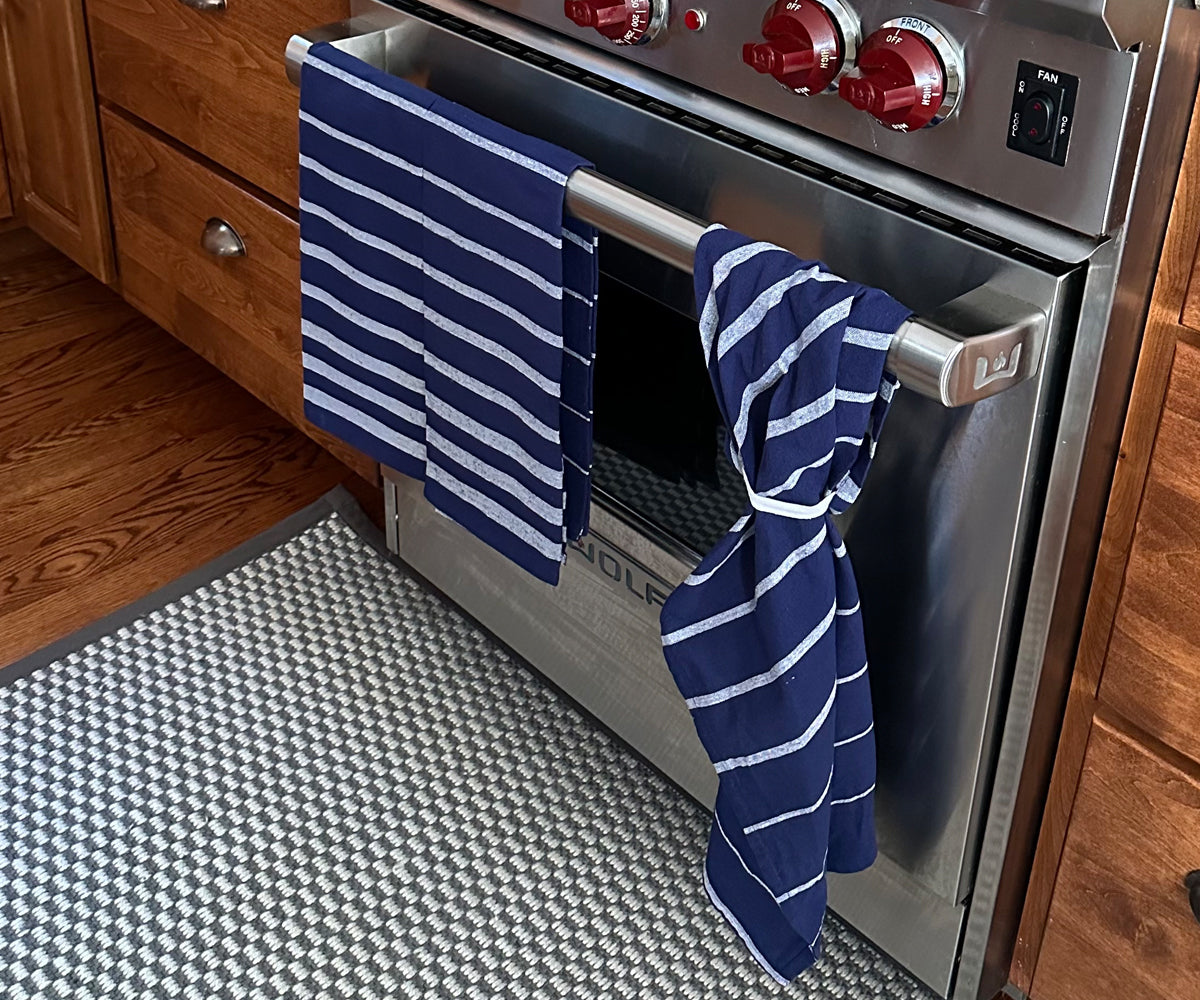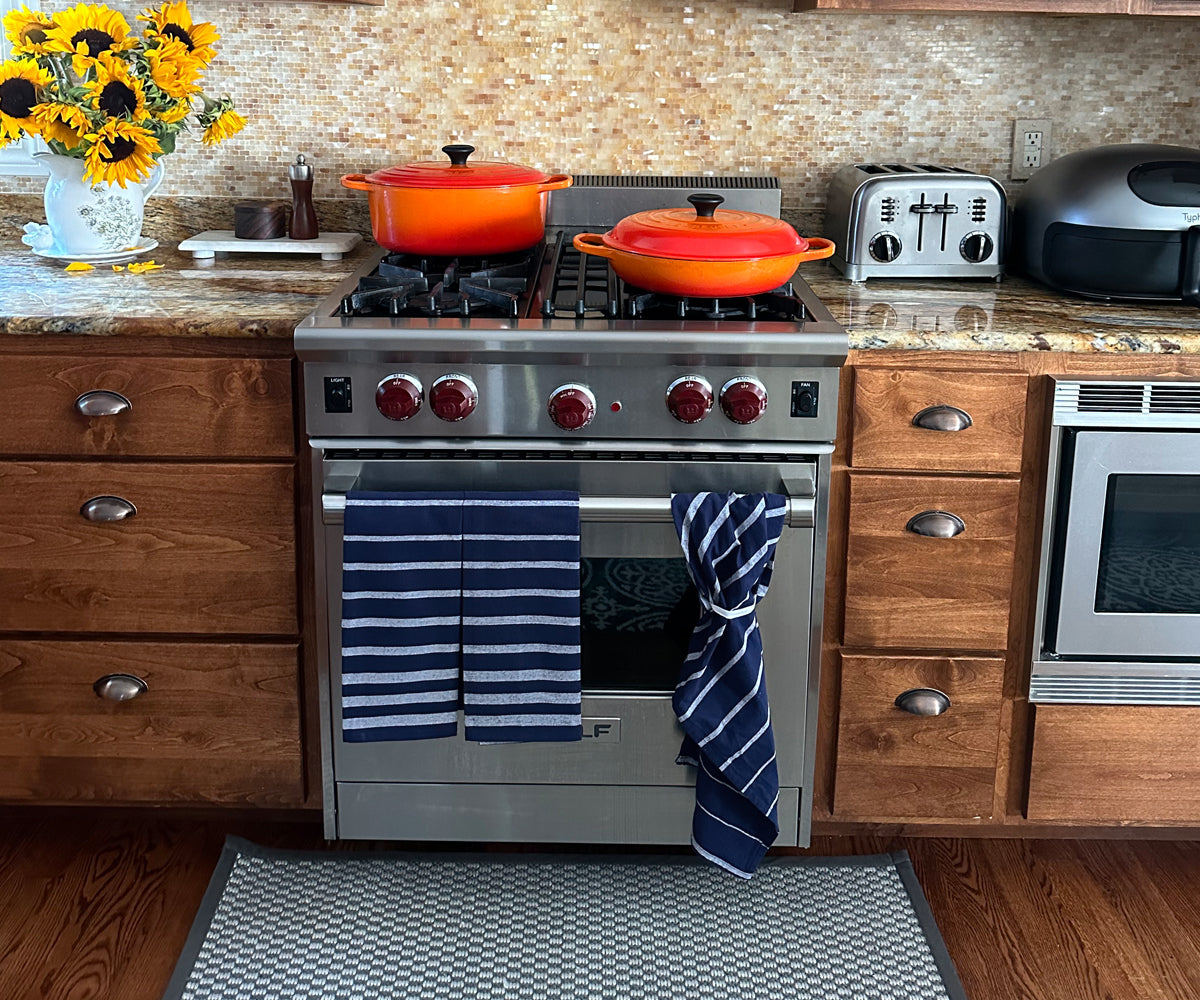1. Choose the Right Material
Selecting the right material is crucial for ensuring the softness and longevity of your kitchen towels. Two of the best options are cotton and linen towels, each offering unique benefits.
Cotton Towels
Cotton towels are widely favored for their natural softness, absorbency, and durability. Cotton fibers are breathable, making them ideal for various kitchen tasks, from drying dishes to wiping hands. Egyptian cotton and Turkish cotton are especially popular for their luxurious feel and long-lasting quality.
- Egyptian cotton: This type of cotton is renowned for its extra-long fibers, which provide superior softness and strength. Egyptian cotton towels are highly absorbent and become softer with each wash, making them an excellent investment for long-term use.
- Turkish cotton: Turkish cotton towels are known for their perfect balance between softness and absorbency. They feature long fibers that make the towels fluffy yet durable. Turkish cotton also has the unique property of becoming softer over time, ensuring continued comfort and effectiveness.
Cotton towels are versatile, easy to care for, and ideal for everyday kitchen use. They are also less prone to fraying, which contributes to their longevity.
Linen Towels
Linen towels are another excellent choice, especially if you're looking for durability and a natural, rustic feel. Linen is made from the flax plant and is known for being incredibly strong and long-lasting.
Avoid synthetic materials like polyester, as they tend to lose their softness and absorbency more quickly and are less effective at drying dishes and hands.
2. Wash Before First Use
New kitchen towels often come with a coating that can reduce their absorbency. To ensure your towels work effectively from the start, wash them before first use. This initial wash removes any manufacturing residues and helps to soften the fibers.
- Use mild detergent: Harsh detergents can leave residues that make towels stiff. Choose a gentle, fragrance-free detergent to protect the fibers.
- Avoid fabric softeners: Although it might seem counterintuitive, fabric softeners can coat the fibers and reduce absorbency. Instead, add a half cup of white vinegar to the rinse cycle to naturally soften the towels.
3. Wash with Care
Regular washing is key to maintaining the softness and longevity of your kitchen towels. However, improper washing techniques can do more harm than good. Follow these tips to keep your towels in top condition:
- Separate by color: Wash white and light-colored towels separately from dark ones to prevent color bleeding.
- Use the right temperature: Hot water can cause shrinkage and damage to the fibers over time. Wash towels in warm or cold water to preserve their softness and prevent shrinking.
- Avoid overloading the washing machine: Overloading can cause towels to rub against each other excessively, leading to wear and tear. Give your towels plenty of space to move freely in the wash.
- Use the correct amount of detergent: Too much detergent can leave a residue that stiffens the fibers. Follow the detergent manufacturer's instructions and consider using less than the recommended amount to keep your towels soft.
4. Drying Techniques
How you dry your kitchen towels is just as important as how you wash them. The drying process can significantly affect the softness and longevity of your towels.
- Air-dry whenever possible: Air-drying is the gentlest method and helps preserve the towels' fibers. Hang them in a well-ventilated area or outside in the sun for best results.
- Tumble dry on low heat: If you prefer using a dryer, choose a low heat setting. High heat can weaken the fibers and cause them to become rough over time.
- Use dryer balls: Adding wool dryer balls to your dryer can help fluff the towels and prevent them from clumping together, leading to a softer feel.
5. Avoid Fabric Softeners and Bleach
While fabric softeners and bleach may seem like useful products, they can actually damage your kitchen towels in the long run.
- Fabric softeners: These products coat the fibers with a film that reduces absorbency. Over time, this can make your towels less effective at drying. Instead, use vinegar in the rinse cycle to keep your towels soft.
- Bleach: While bleach can remove stains and whiten towels, it also weakens the fibers, making them more prone to fraying and tearing. Opt for oxygen-based bleach alternatives, which are gentler on the fabric.
6. Regularly Clean Your Washing Machine
Your washing machine plays a crucial role in maintaining the softness and longevity of your kitchen towels. A dirty washing machine can transfer residue, bacteria, and odors to your towels, affecting their quality.
- Run an empty hot water cycle: Once a month, run an empty cycle with hot water and a cup of white vinegar or baking soda to clean the machine. This removes any buildup of detergent, fabric softener, and bacteria.
- Wipe down the drum and seals: After each wash, wipe down the inside of the machine, including the drum and seals, to prevent mold and mildew from forming.
7. Rotate Your Towels
To extend the longevity of your kitchen towels, it's essential to have multiple towels on hand and rotate them regularly. This practice allows each towel to rest between uses, reducing wear and tear.
- Use a towel rotation system: Keep a set of towels for daily use and rotate them weekly. This ensures that no single towel is overused, leading to a longer lifespan for each one.
- Store towels properly: When not in use, store your towels in a cool, dry place. Avoid leaving them in damp or humid areas, as this can lead to mildew and odor buildup.
8. Treat Stains Promptly
Stains are inevitable in the kitchen, but how you treat them can affect the softness and longevity of your towels. Acting quickly can prevent stains from setting and reduce the need for harsh treatments that can damage the fibers.
- Blot, don't rub: When a stain occurs, blot it with a clean cloth to absorb as much of the spill as possible. Rubbing can push the stain deeper into the fibers.
- Use natural stain removers: For tough stains, try using baking soda, white vinegar, or lemon juice. These natural options are less harsh on the fabric than commercial stain removers.
- Pre-treat stains before washing: Apply a small amount of mild detergent or a natural stain remover to the stained area before washing. Let it sit for a few minutes before laundering as usual.
9. Avoid Overuse of Towels
Using the same kitchen towel for multiple tasks throughout the day can lead to excessive wear and tear, reducing its longevity. It's important to use your towels appropriately to maintain their quality.
- Designate towels for specific tasks: Have separate towels for drying dishes, wiping counters, and handling hot items. This prevents cross-contamination and reduces the risk of damage from overuse.
- Change towels daily: Swap out kitchen towels daily, especially if they've been used for tasks that involve contact with food or moisture. This helps prevent odors and bacterial buildup.
10. Store Towels Properly
Proper storage is essential to maintaining the softness and longevity of your kitchen towels. How and where you store them can impact their quality over time.
- Fold towels neatly: After washing and drying, fold your towels neatly to prevent creases and maintain their shape.
- Store in a dry place: Moisture is the enemy of softness and longevity. Store your towels in a dry, well-ventilated area to prevent mildew and odors.
- Avoid overcrowding: Don't stack towels too tightly in a drawer or cabinet. Allowing air to circulate around them helps keep them fresh and soft.
11. Refresh Towels with Baking Soda
Over time, kitchen towels can develop odors or lose their softness. Refresh them naturally with baking soda, a gentle yet effective solution.
- Add baking soda to the wash: Every few washes, add a half cup of baking soda to your laundry along with your regular detergent. Baking soda helps to remove odors, soften the fibers, and boost the effectiveness of the detergent.
- Soak towels in a baking soda solution: For particularly stubborn odors, soak your towels in a solution of warm water and baking soda for a few hours before washing.
12. Invest in High-Quality Towels
Finally, investing in high-quality kitchen towels can make a significant difference in their longevity and softness. While they may cost more upfront, well-made towels are more durable and maintain their quality over time.

- Look for reinforced edges: Towels with reinforced or double-stitched edges are less likely to fray and unravel, extending their lifespan.
- Choose a higher GSM: The GSM (grams per square meter) of a towel indicates its thickness and density. Higher GSM towels are usually more absorbent and durable, making them a better investment for long-term use.








